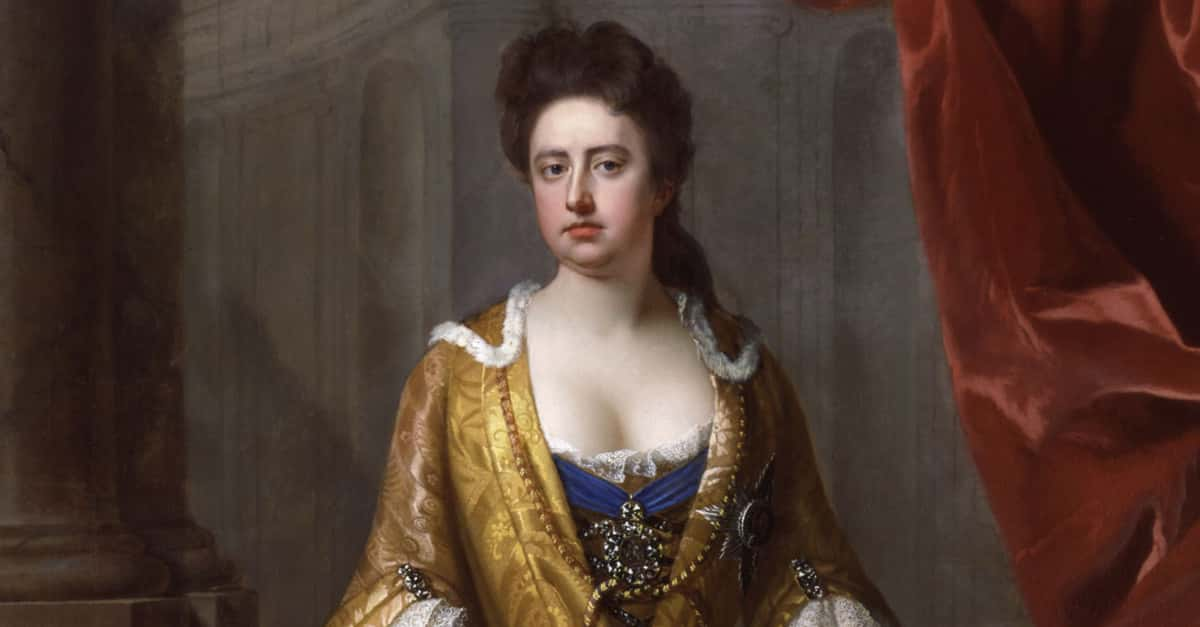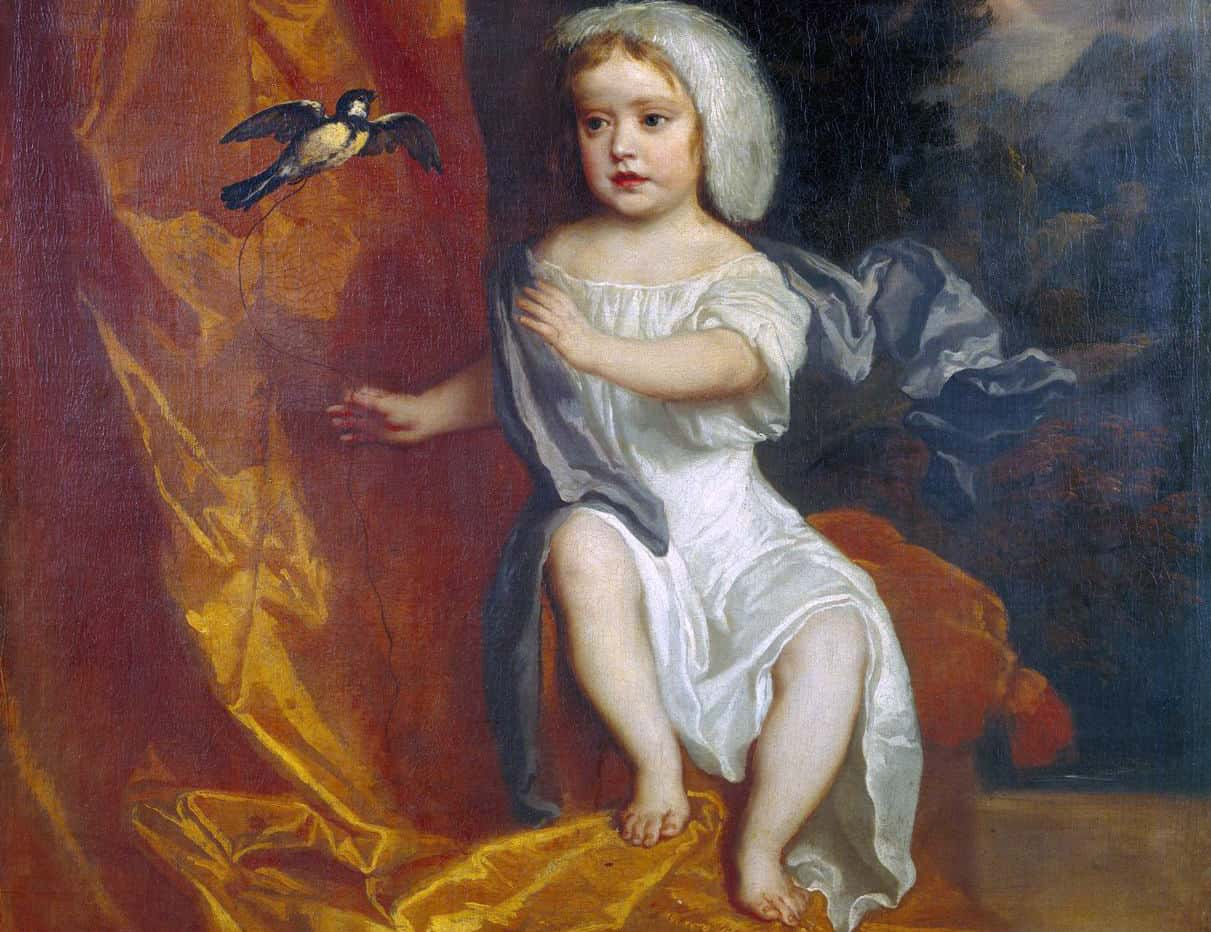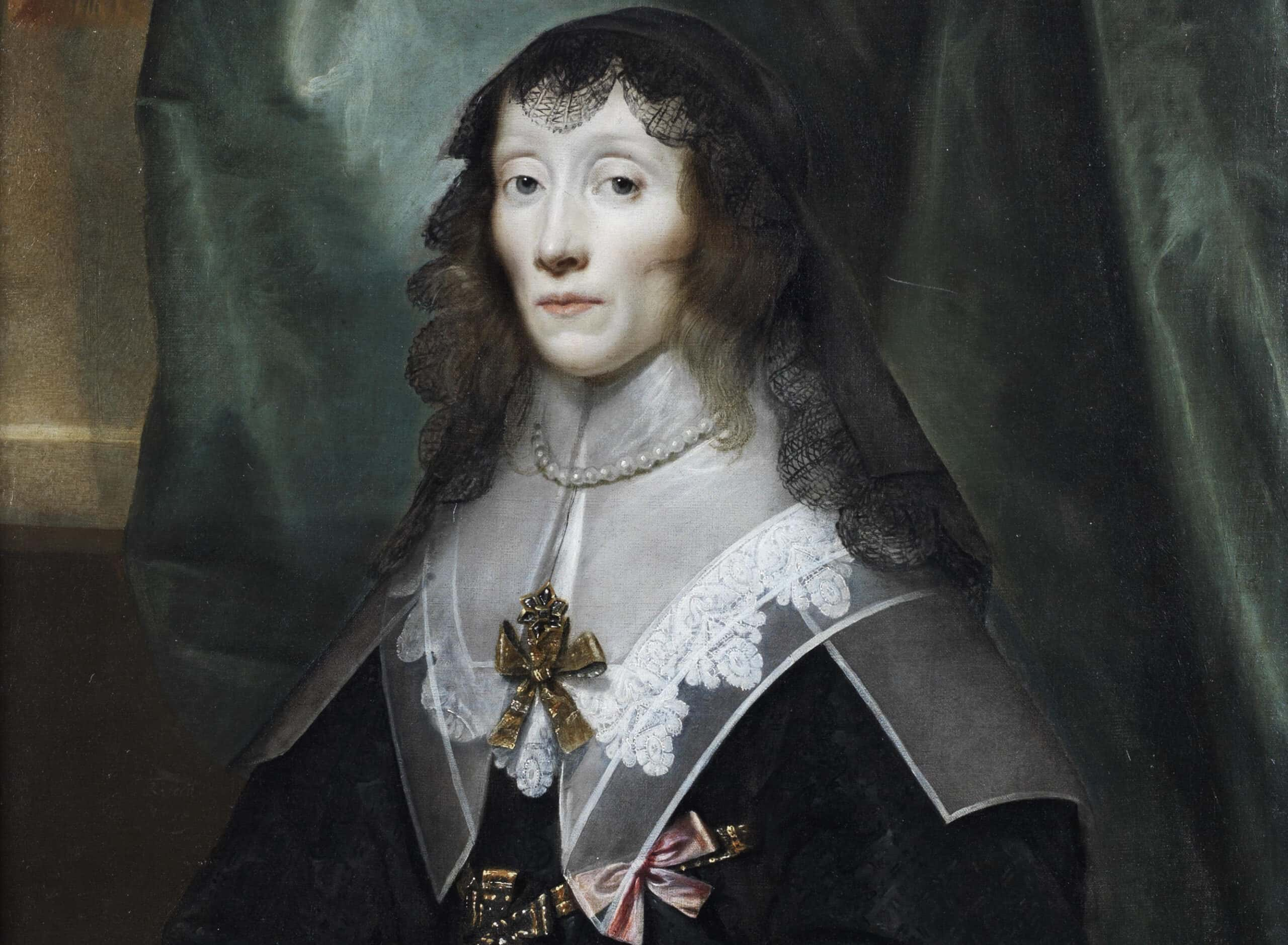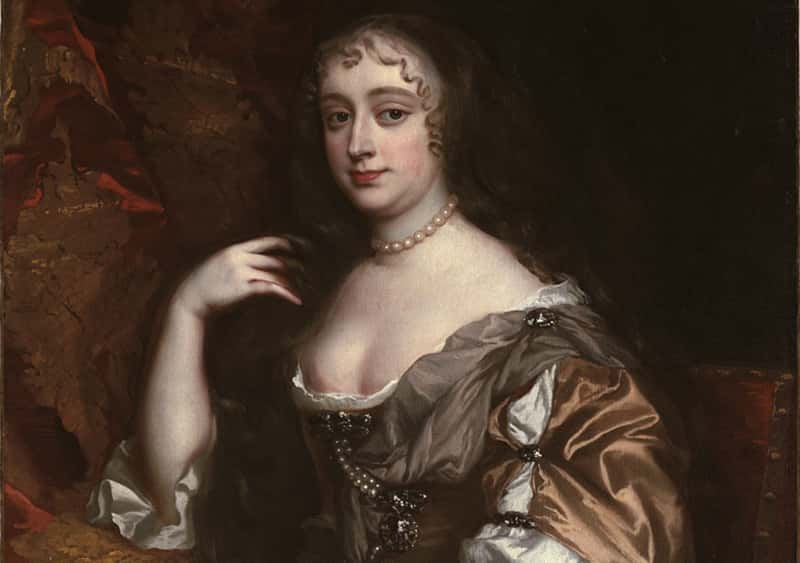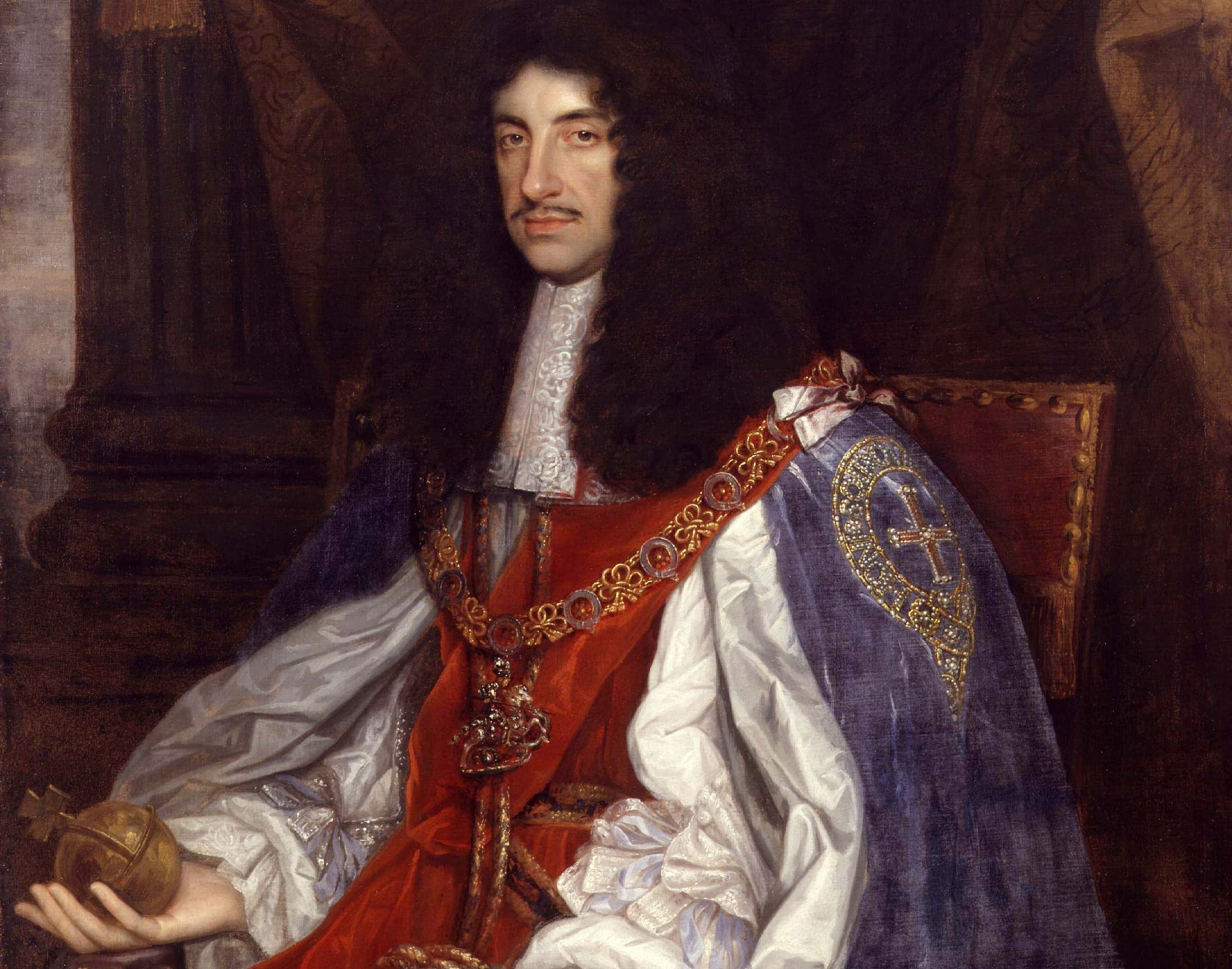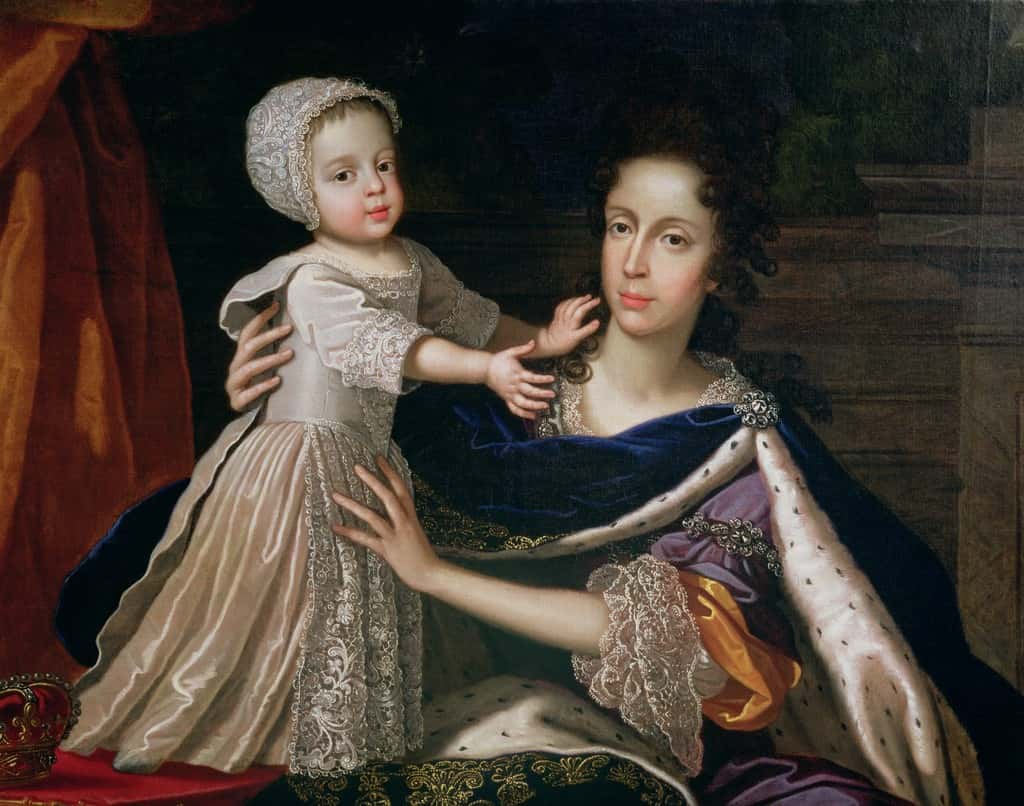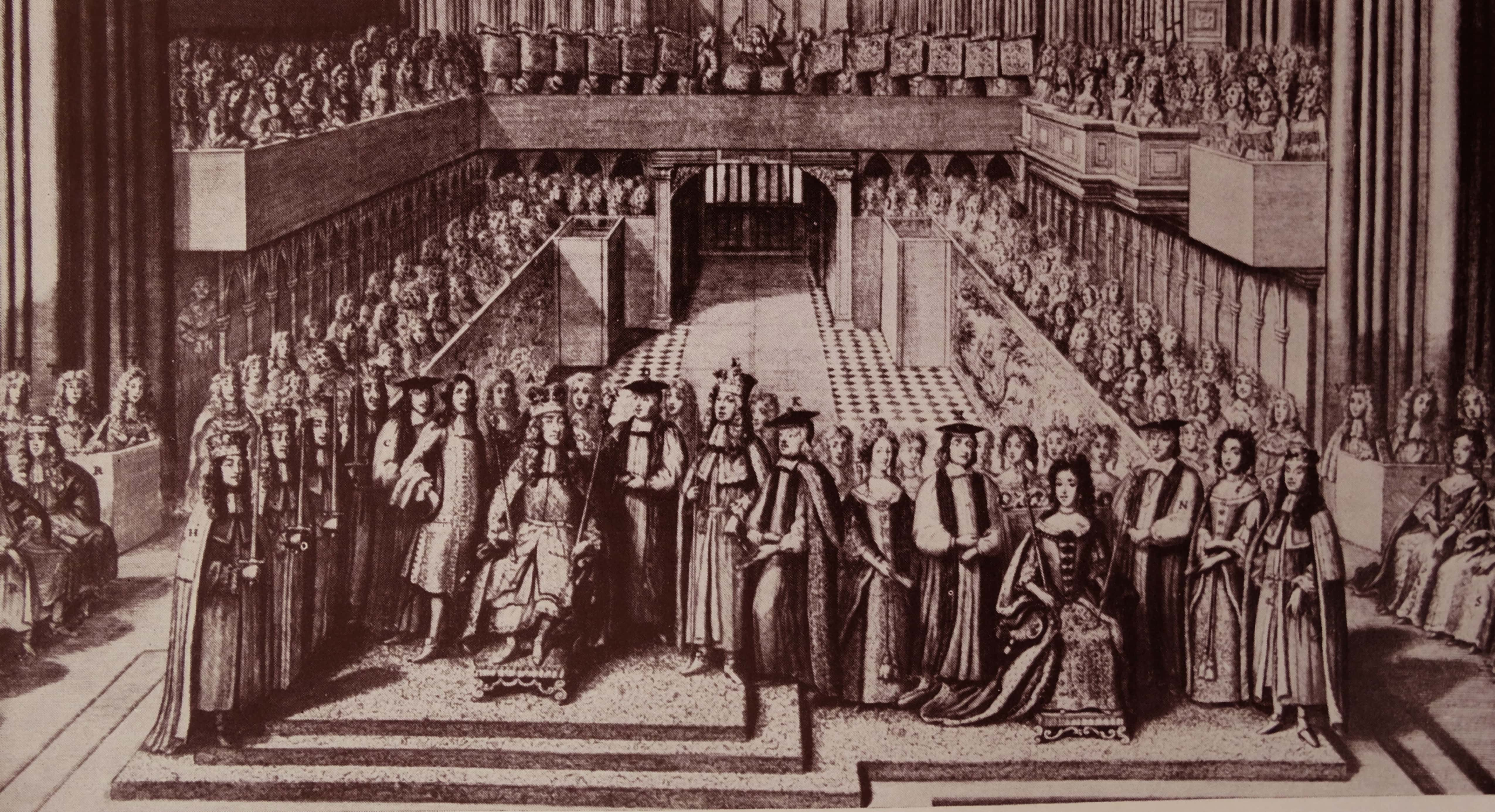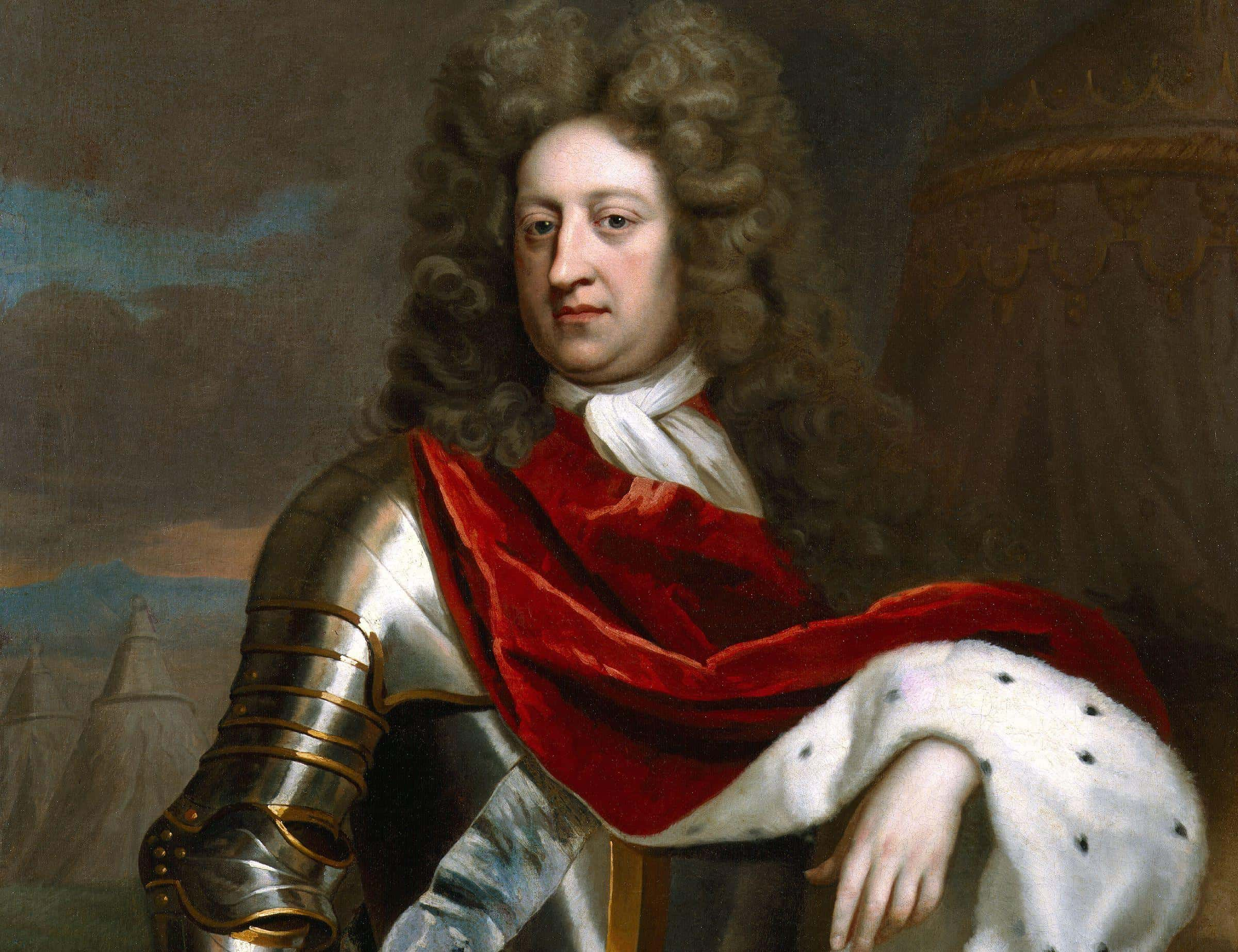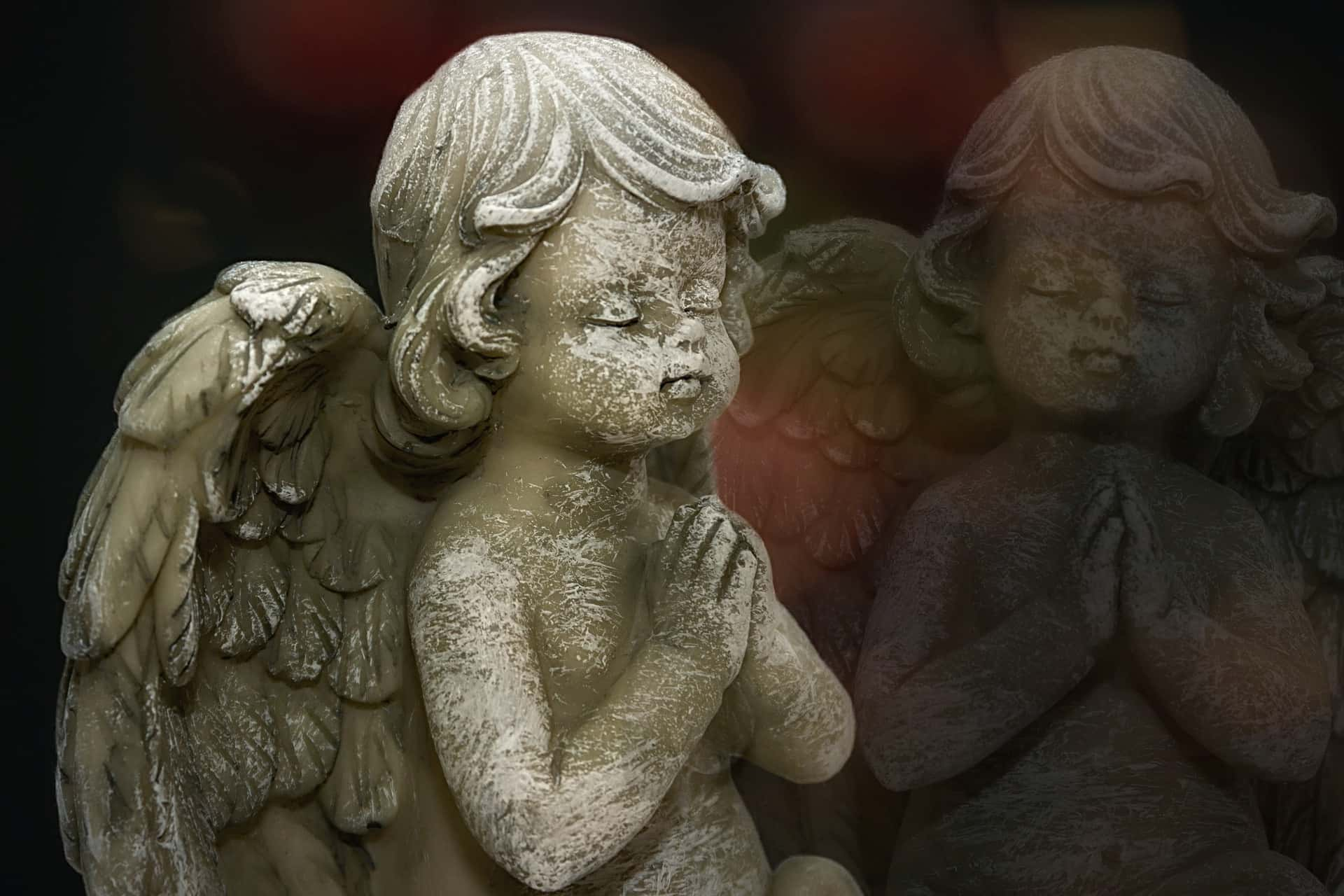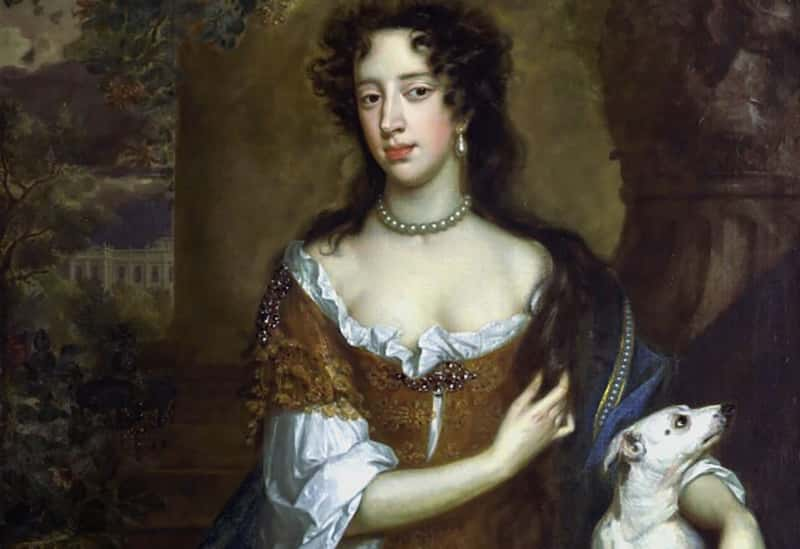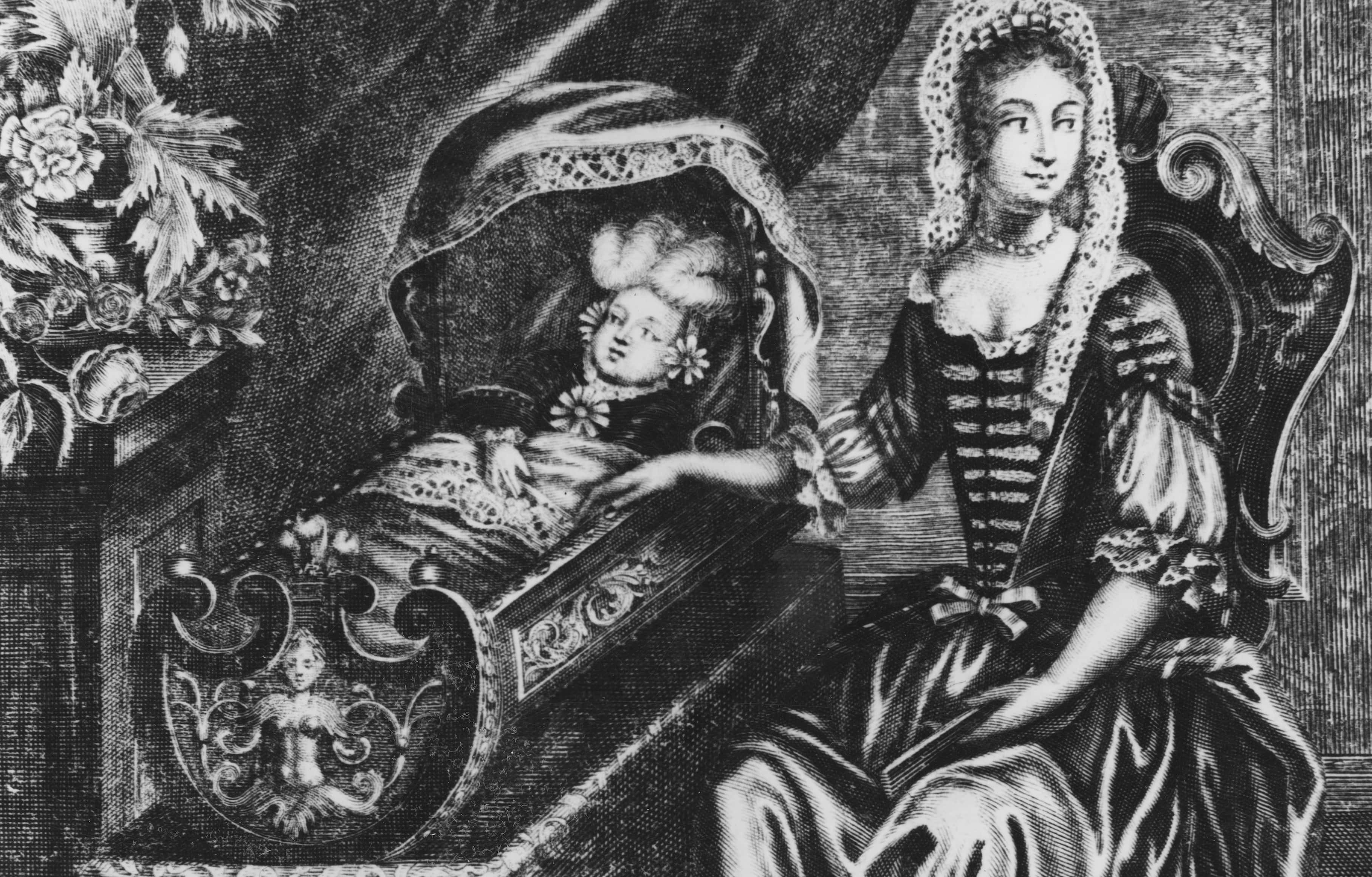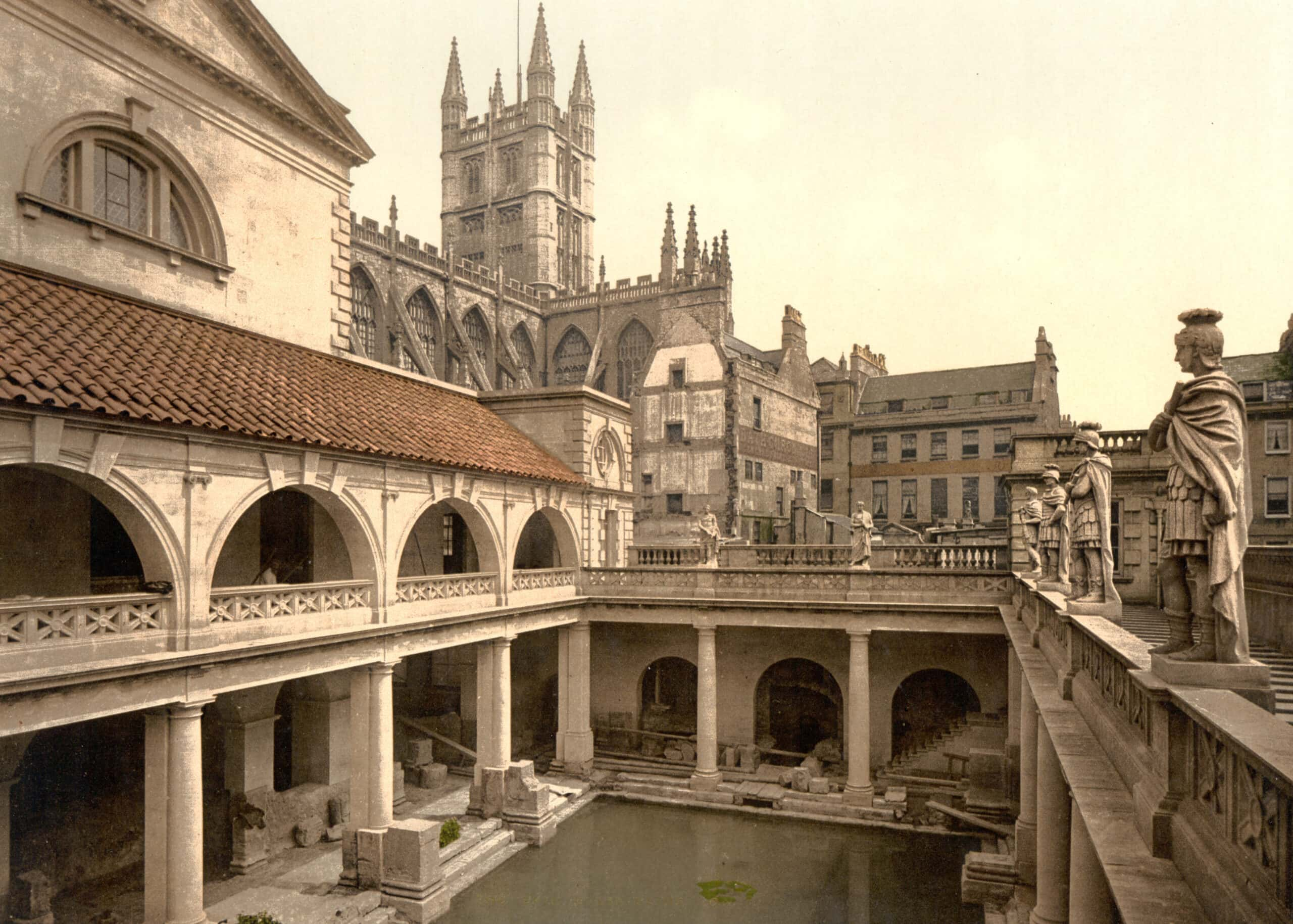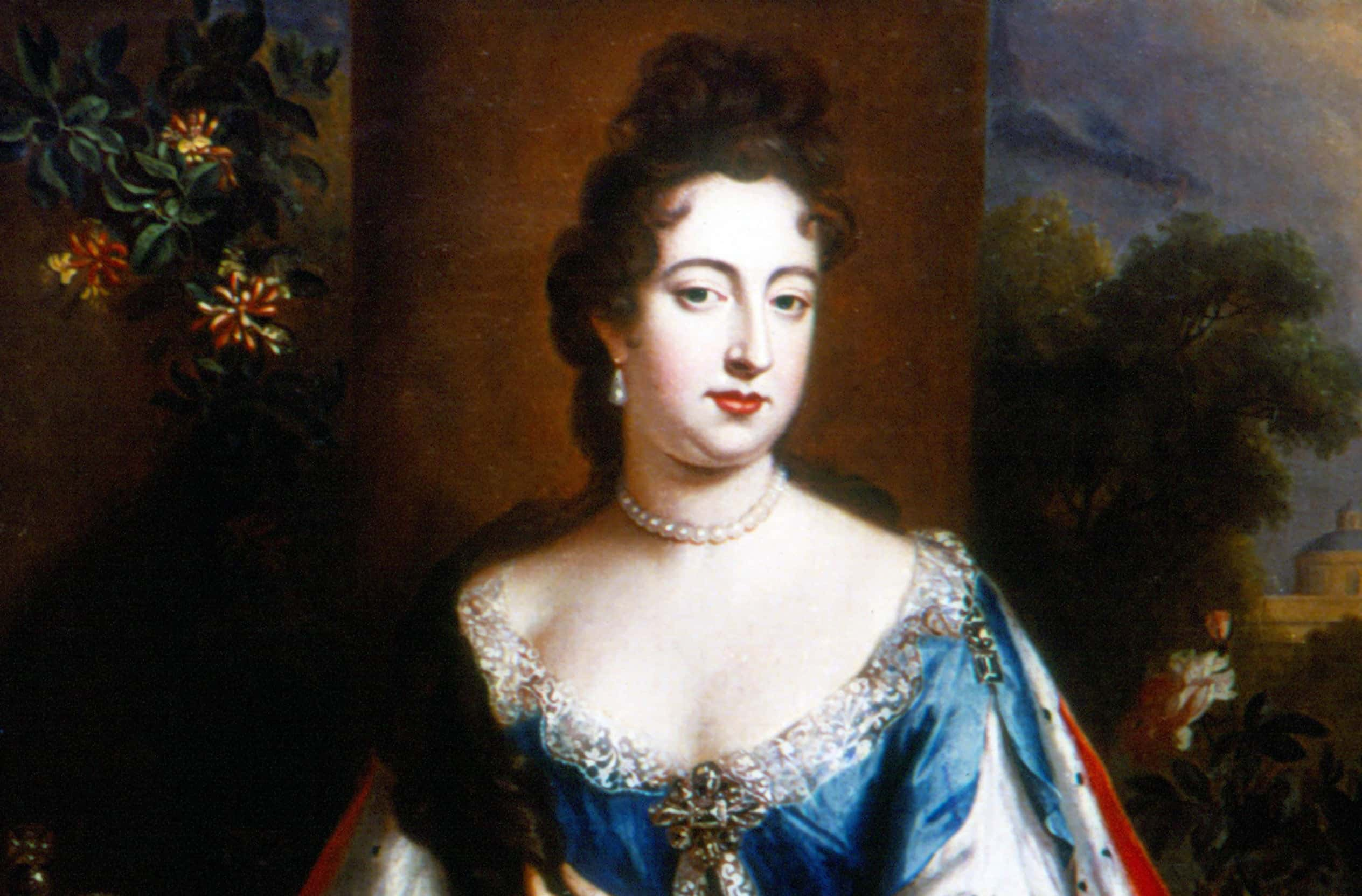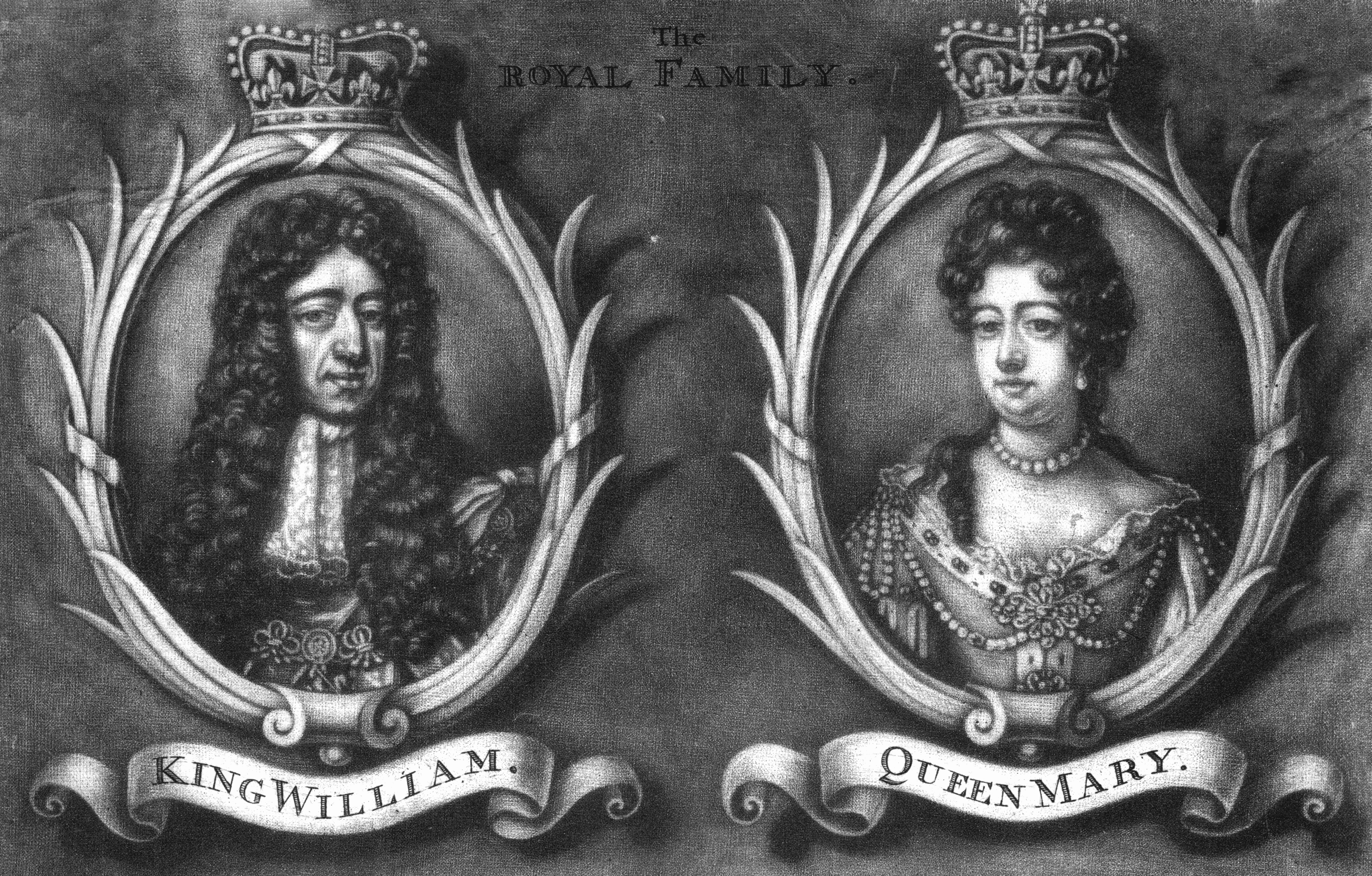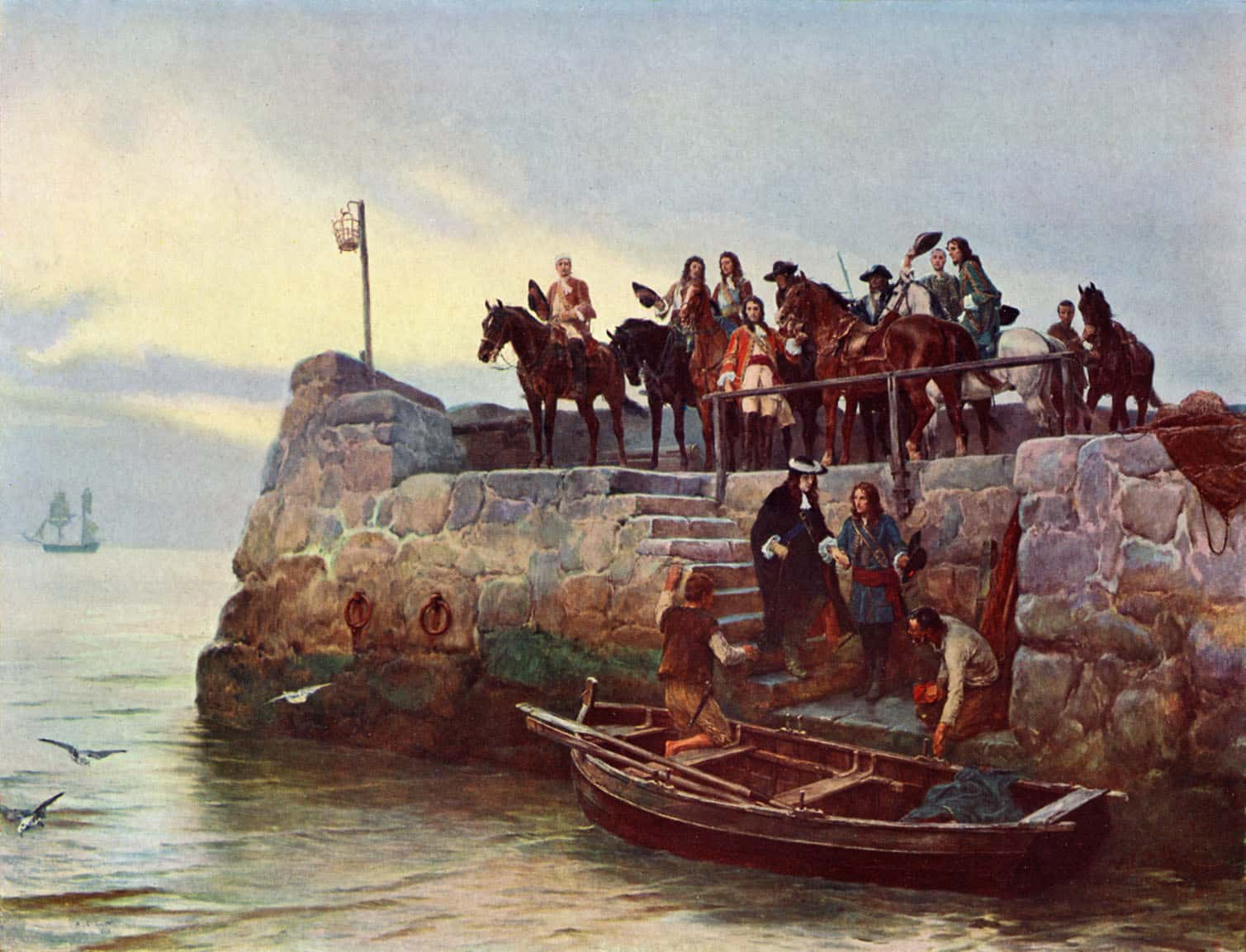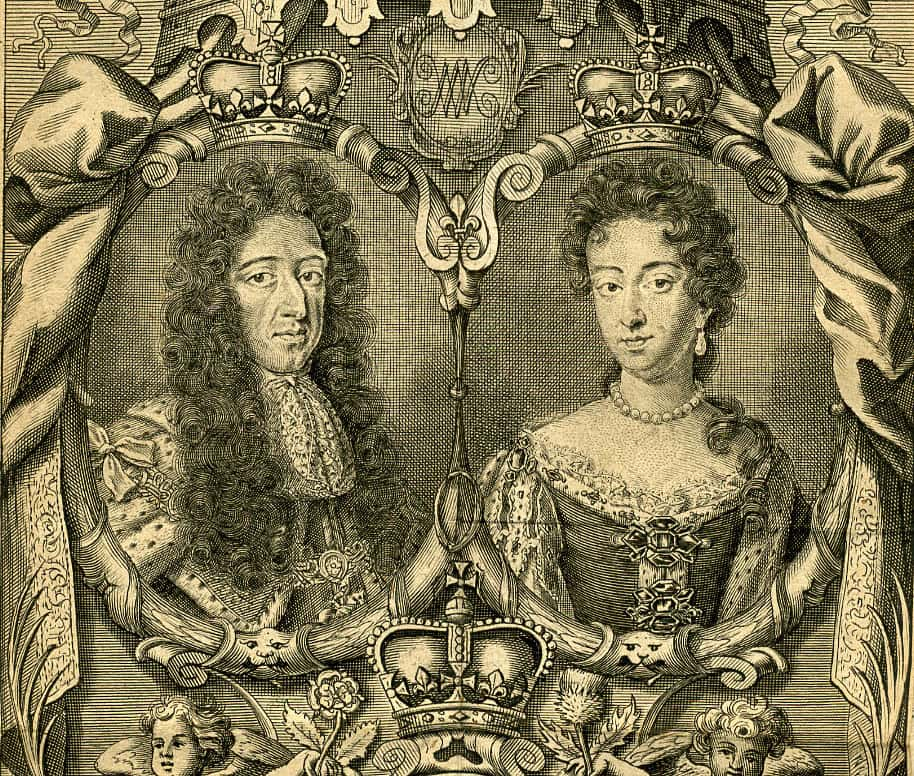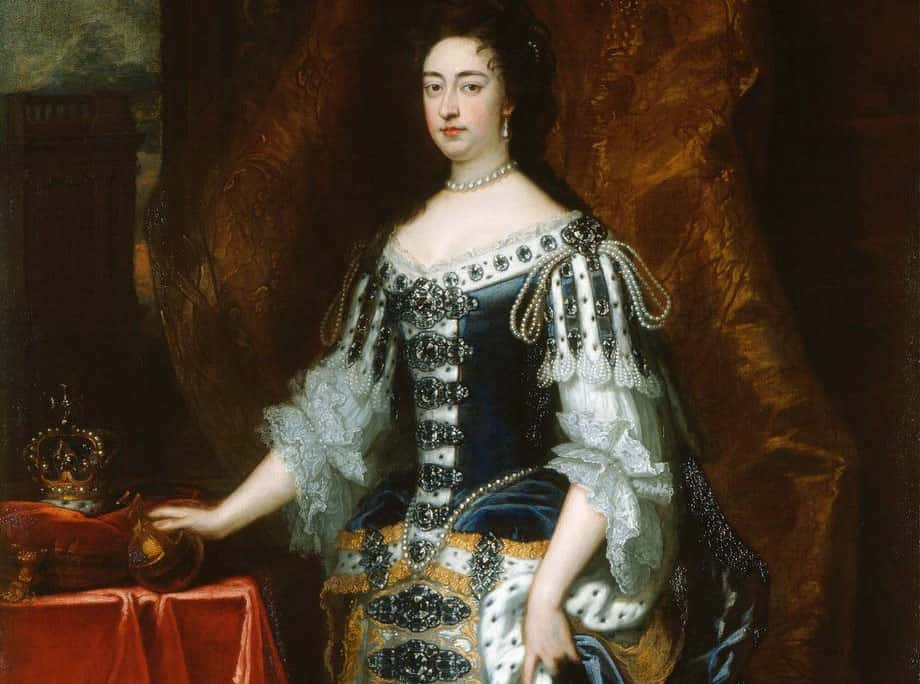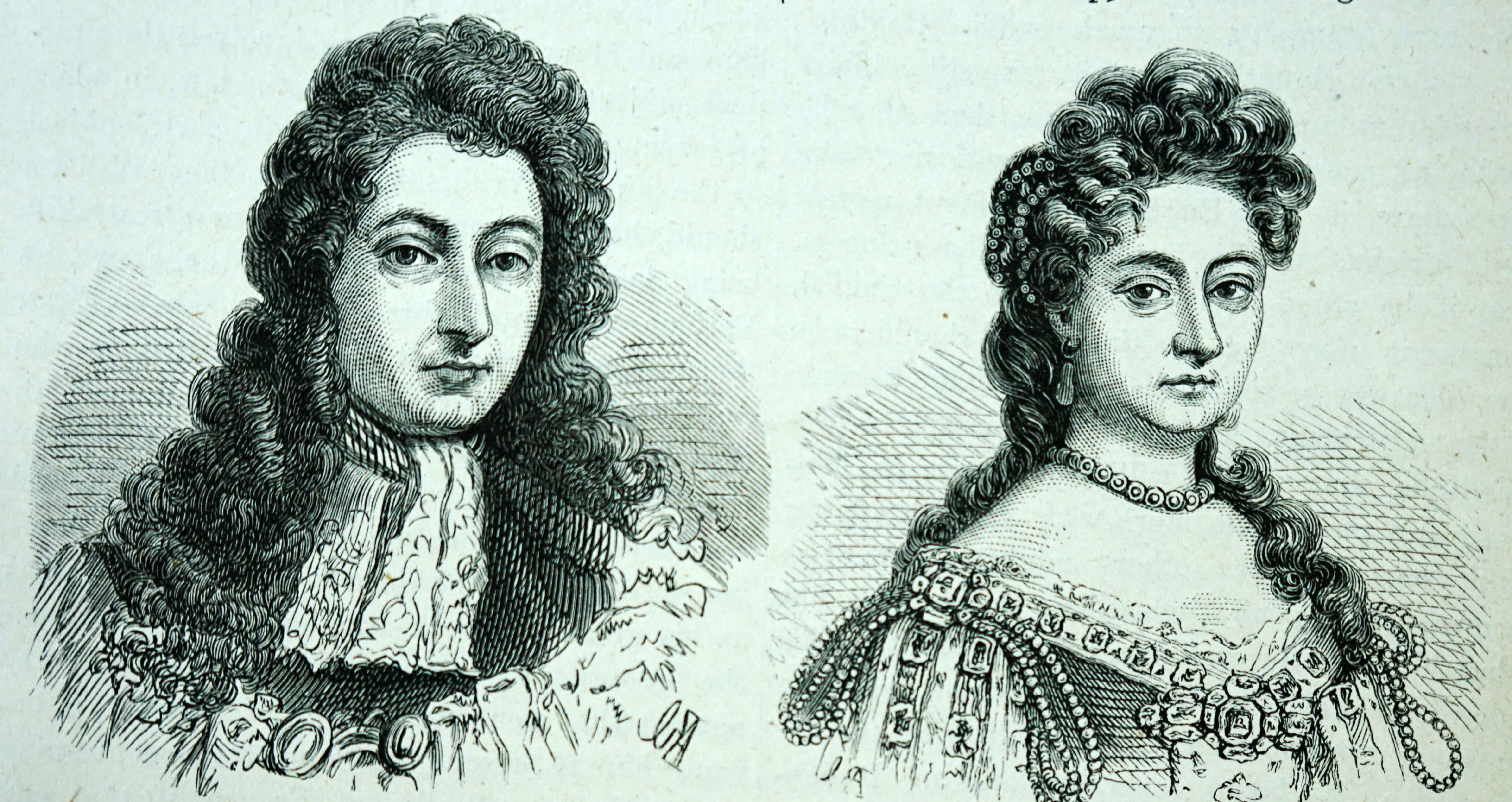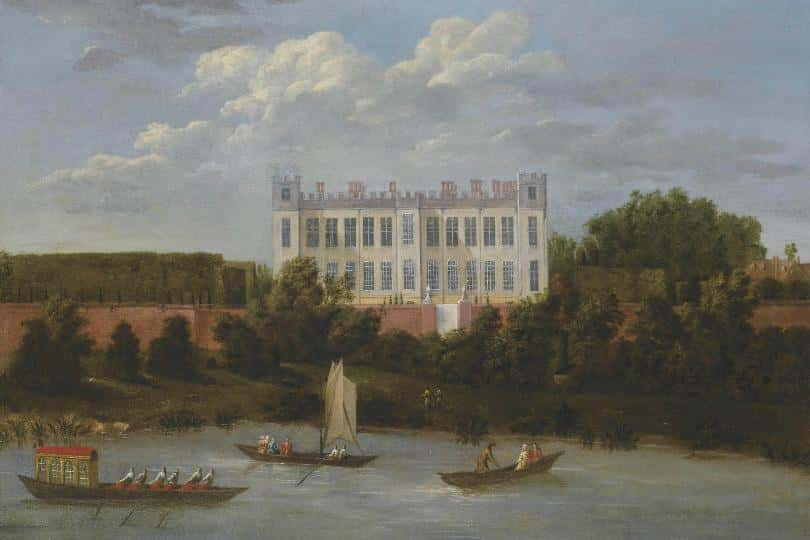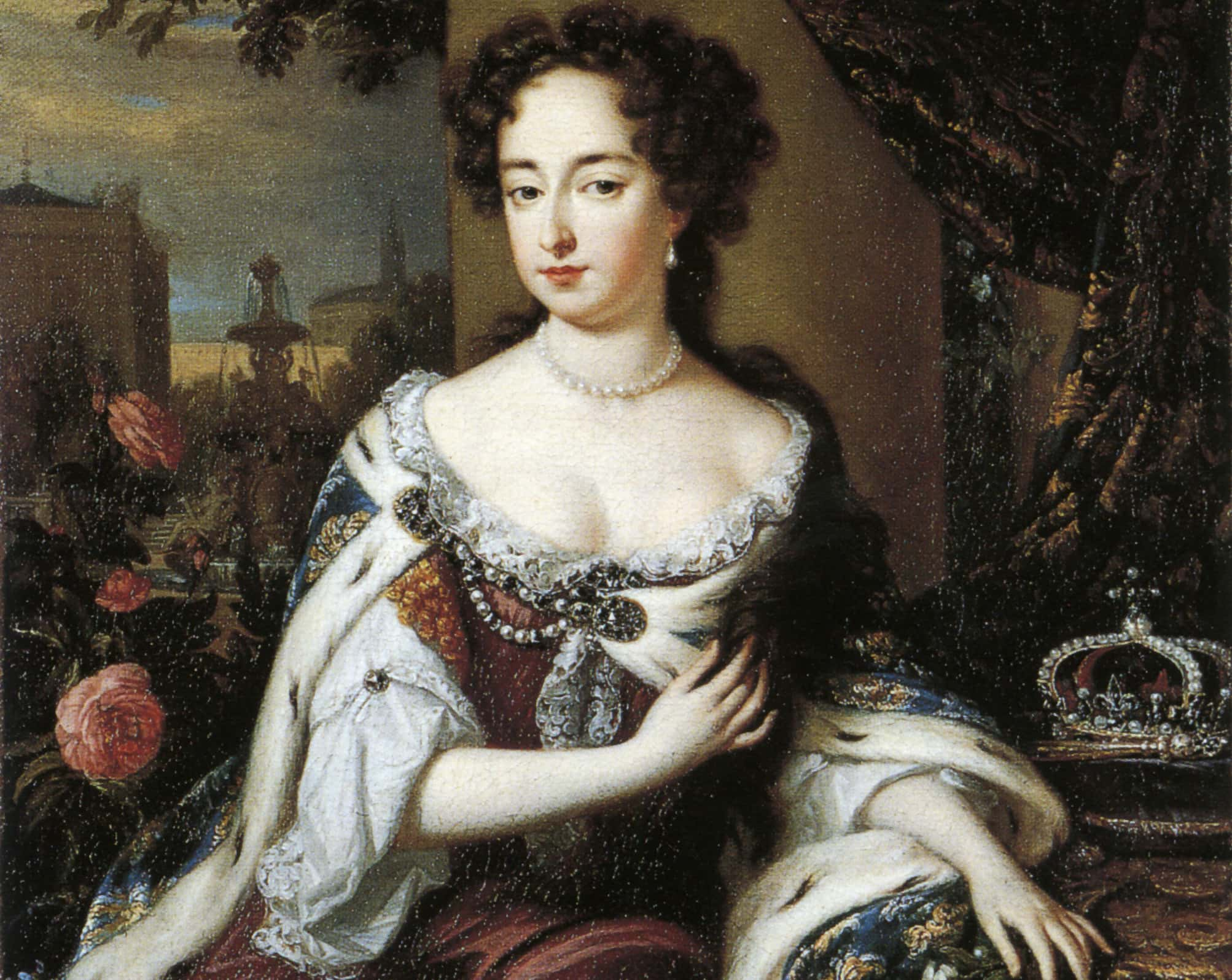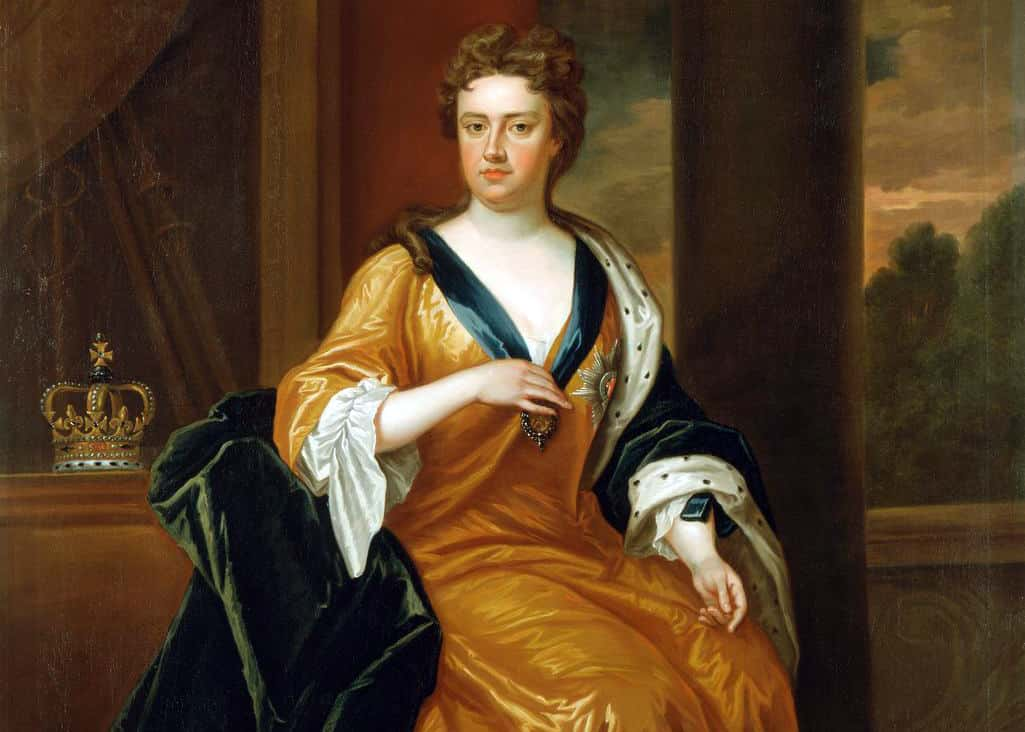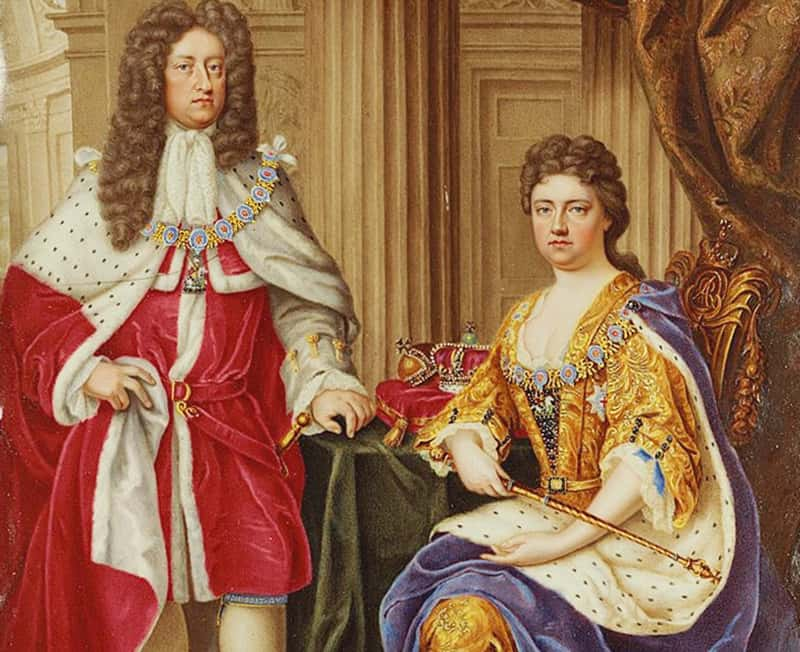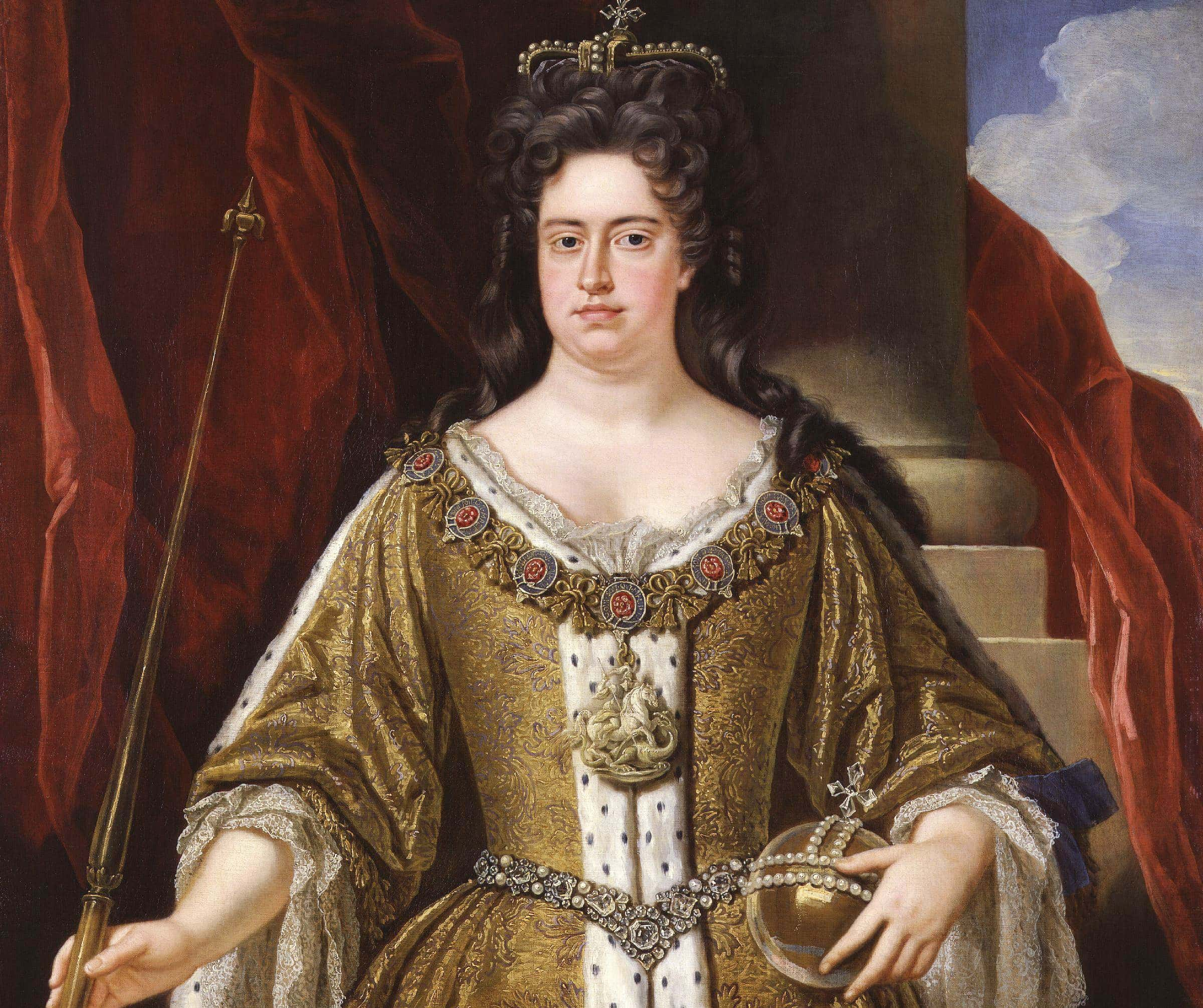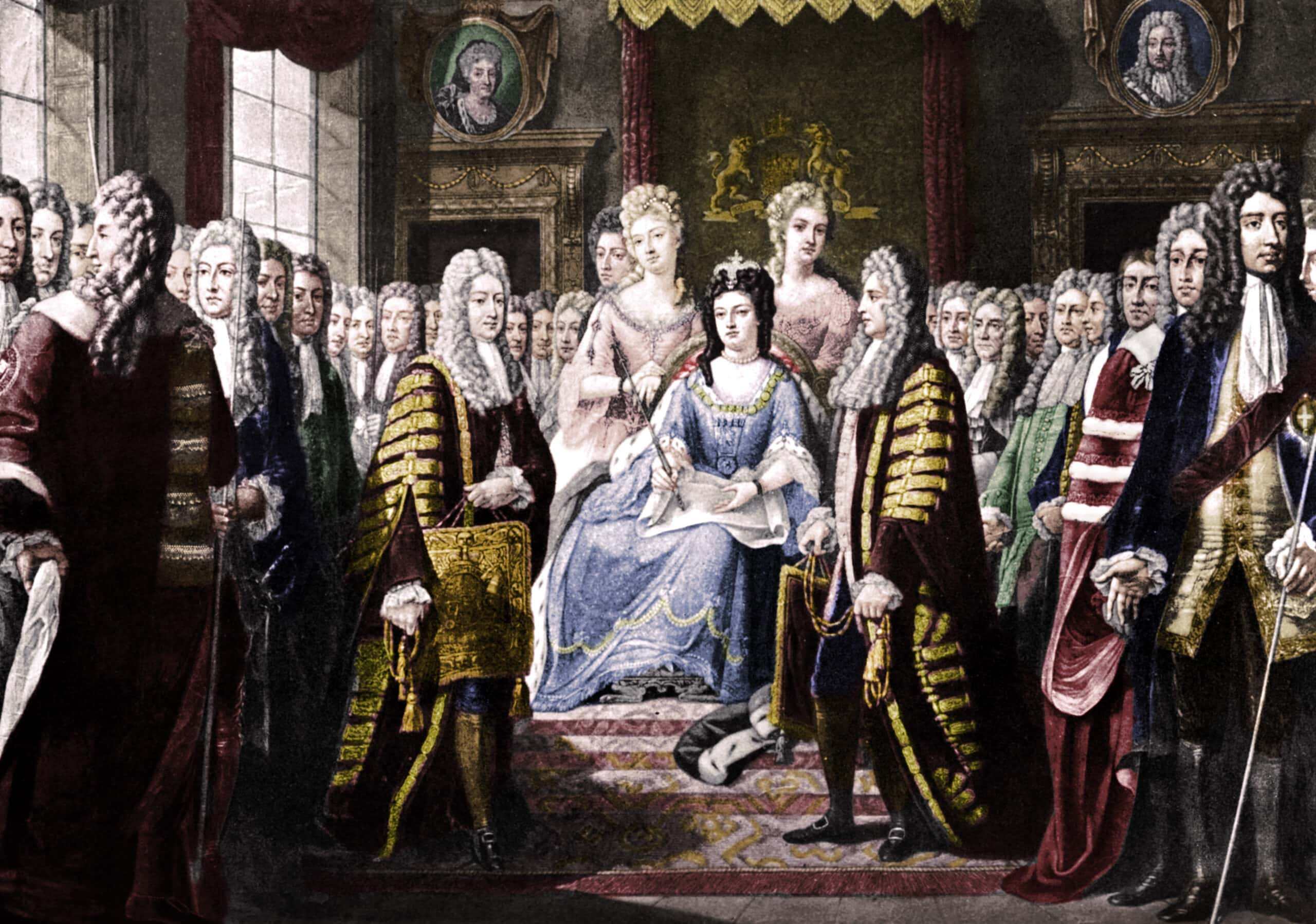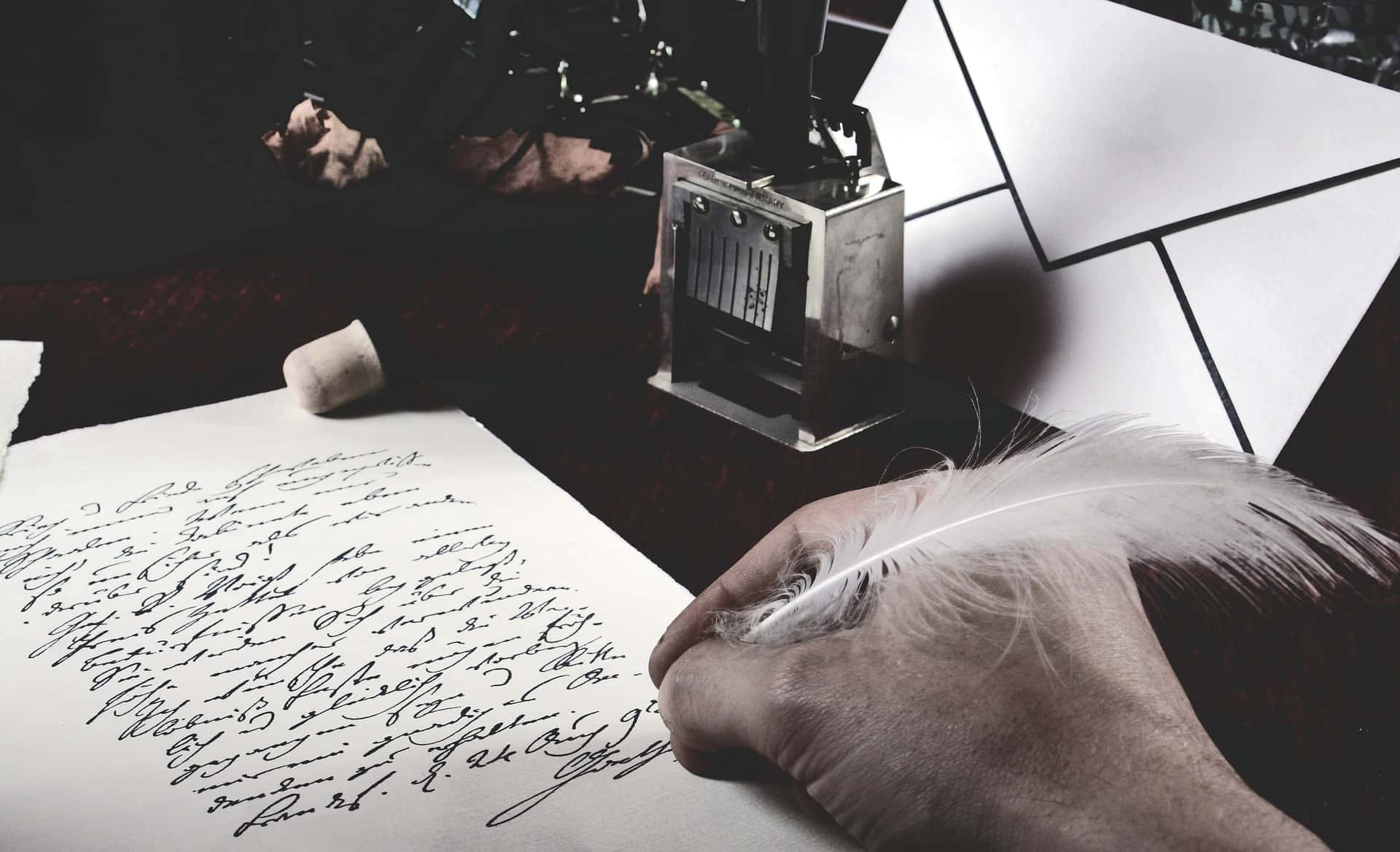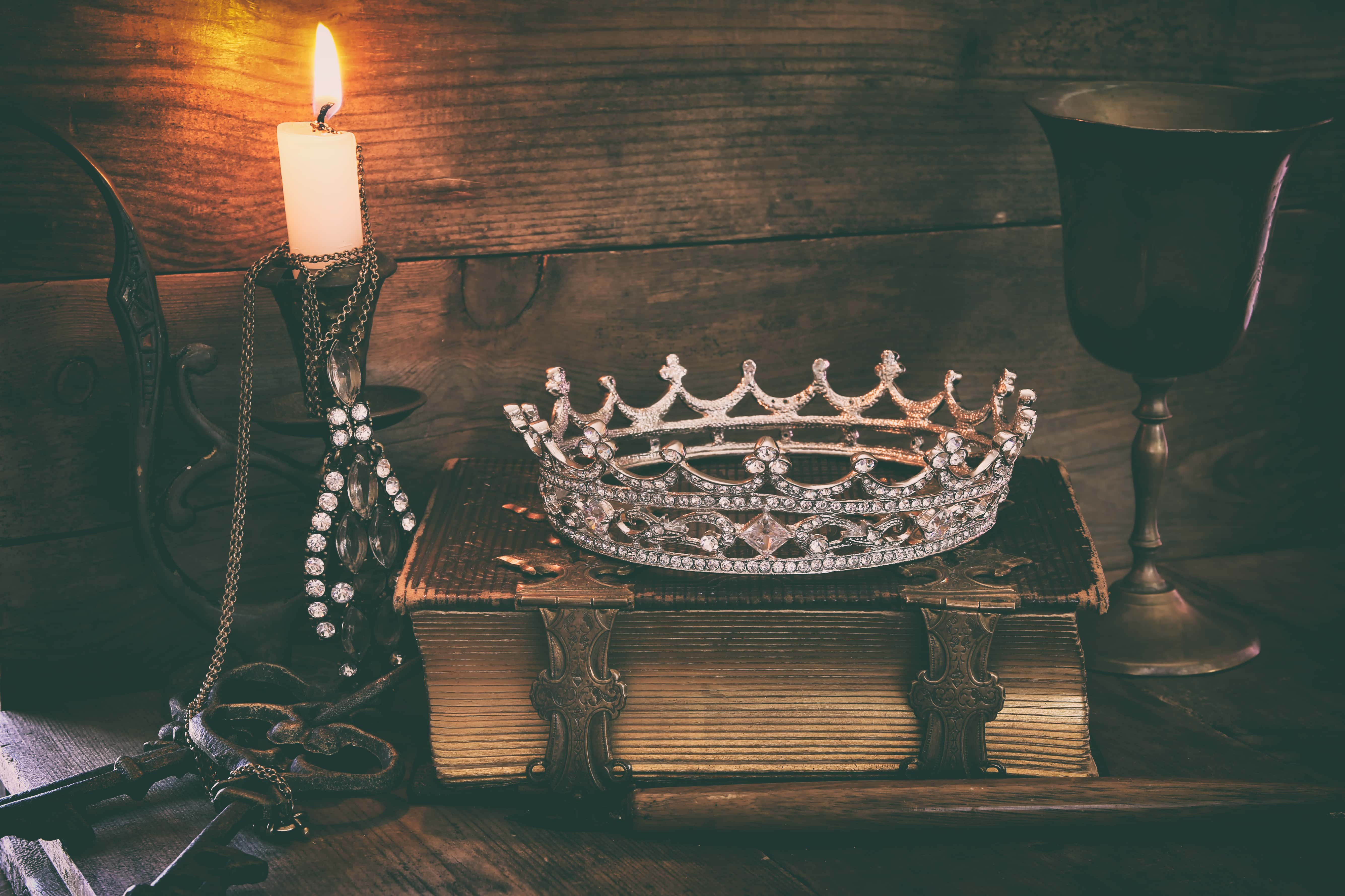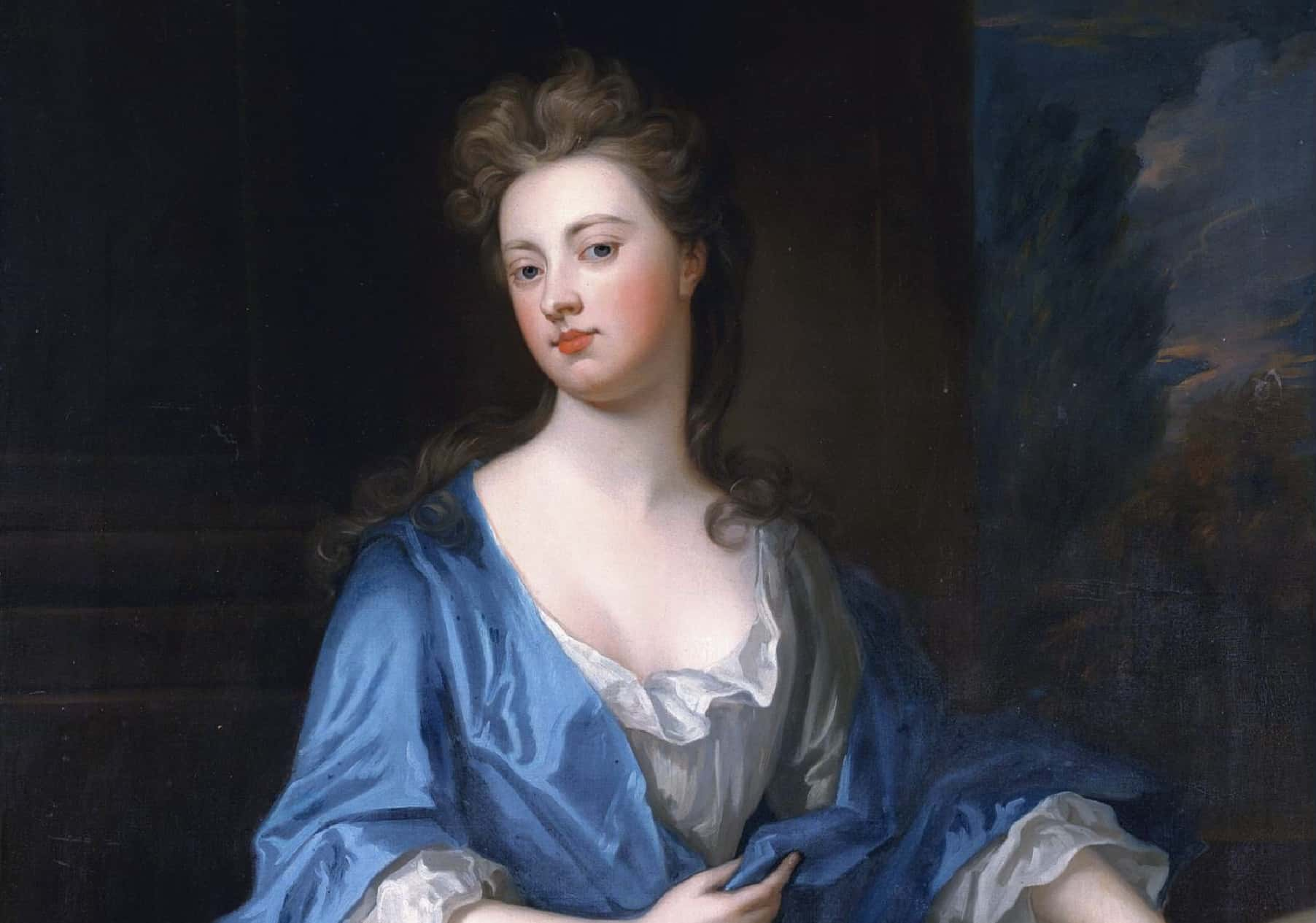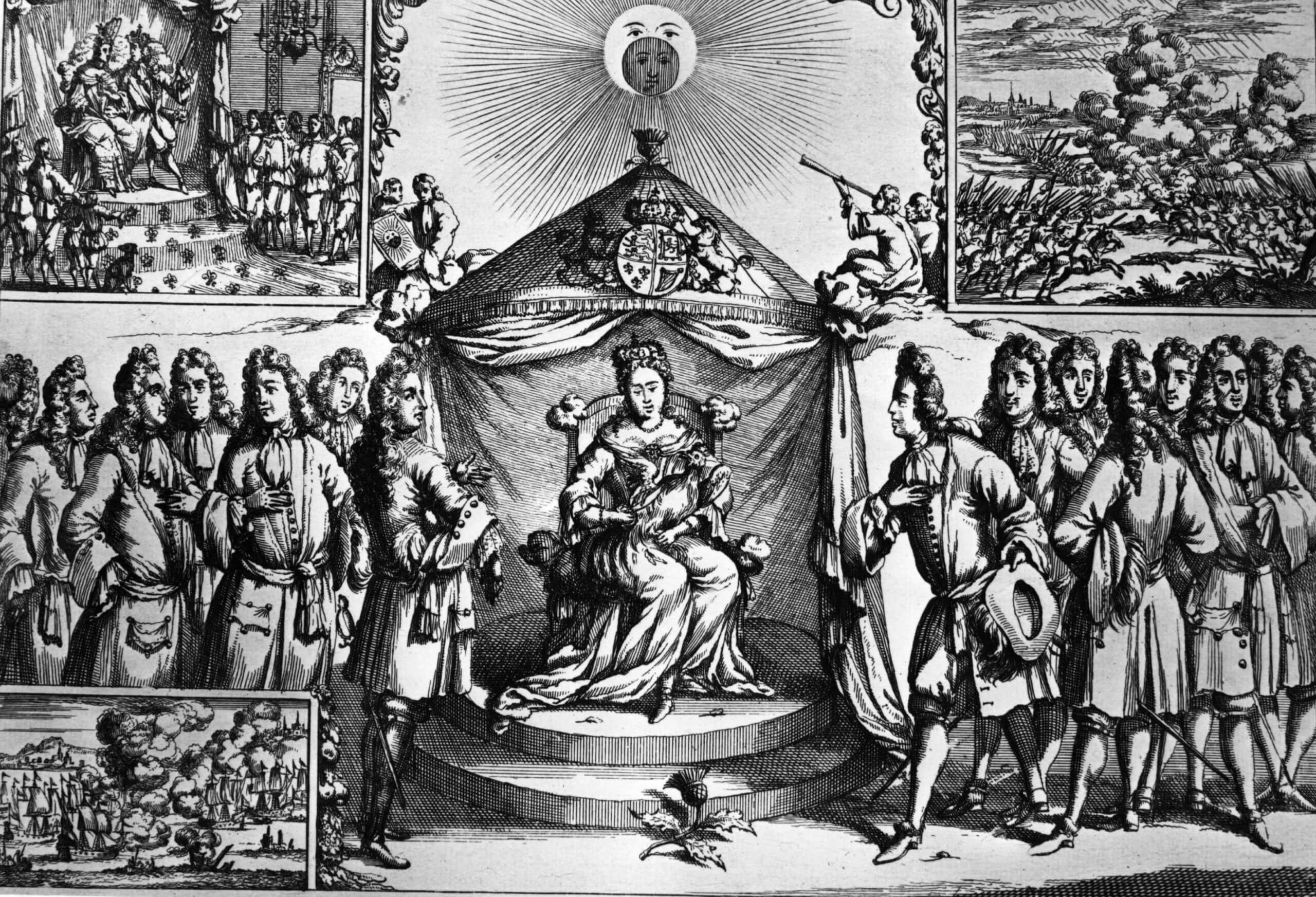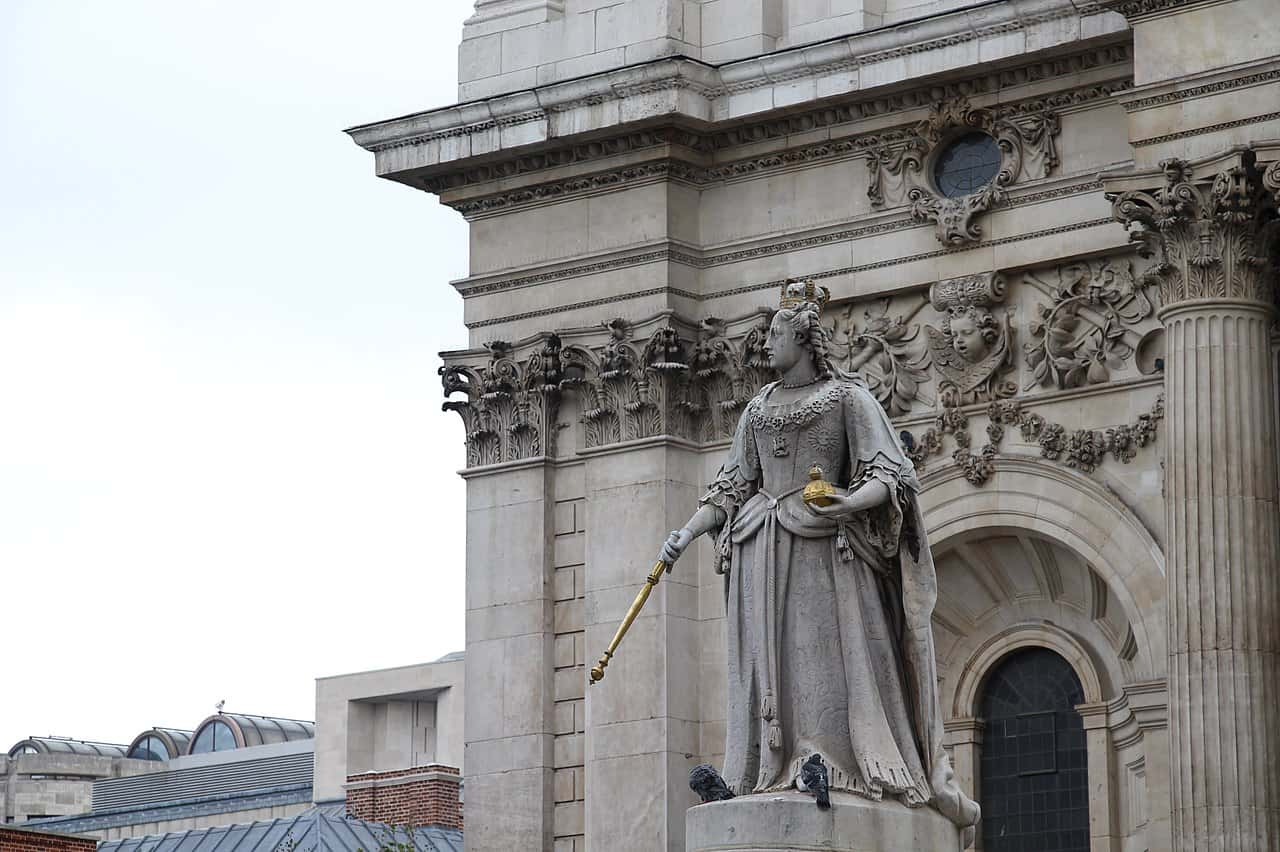Queen Anne makes the most emotional rulers look level-headed by comparison. Equal parts stubborn and sensitive, her reign was a roller coaster for everyone around her. She completely reshaped Great Britain as we know it, but her years on the throne were marked by wild scandals, tragic losses, and a dramatic love-triangle between her and two other women. The Favourite was just the tip of the iceberg when it came to this queen. Want to hear the full story? Dive in and discover more about Anne, the first Queen of Great Britain.
1. Her Uncle Was King
Anne was born in a rocky time period. The years leading up to her birth saw the execution of one king, the iron-fisted rule of Oliver Cromwell, and the restoration of the monarchy with Charles II. After all that, I'm sure the people of England prayed for some normalcy—but once Anne reached the throne, they'd get anything but.
2. She Wasn't Close To Being Queen
No one in England heralded the birth of a future queen when Anne was born. She was the fourth child and second daughter of the king's brother: James, the Duke of York. Not exactly next in line for the crown. But the game of thrones is fickle, and soon enough, Anne would see each of her rivals cast aside, one after another.
3. She Lost Many Siblings
Tragedy struck Anne's household early. Though her parents eventually went on to have eight children, only two of them—Anne and her older sister Mary—would survive to adulthood. But while Anne survived, that's not to say she was thriving.
4. She Literally Cried Constantly
Anne suffered from painful illnesses from the time she was a small child. One of the most debilitating was an eye condition called "defluxion." Basically, Anne's eyes watered at every minute of the day. Her illness affected every part of her life—but this was only a hint to the gruesome afflictions she'd endure later in her life.
5. Her Parents Sent Her Away
17th-century royal families weren't the most lovey-dovey. When Anne's parents realized her watery eyes weren't getting any better, what did they do? They shipped her off to France to live with her intense grandmother: Henrietta Maria of France. Henrietta Maria had lived through her husband Charles I's beheading and lived to tell the tale, so you know she was a ball of fun.
Young Anne had already endured the loss of several siblings by this point in her life, so maybe she hoped France would be an escape from the heartbreak. Sadly, it wasn't.
6. Her Grandmother Passed...Then Her Aunt
Not long after Anne arrived in France, her grandmother passed at just 59 years old. Relatives shipped Anne off to live with an aunt, the Duchess of Orleans, but then she croaked too just a year later! Maybe France was cursed? Regardless, her family brought her back to England next—but the tragedy was only beginning.
7. Her Relatives Just Kept Dying
Almost as soon as Anne returned home, her own mother succumbed to breast cancer at just 34. It seemed everywhere Anne turned, someone was dying. And unfortunately, if she looked to her father for support, she wasn't about to find any from him...
8. She Couldn't Live With Her Father
Remember how I said royal families weren't exactly lovey-dovey? You don't even know the half of it. Per tradition, Anne and her sister lived nowhere near their father. They stayed isolated in Richmond while their pop dealt with matters of state. Seeing as half of her family was dead and the rest were nowhere to be found, Anne was utterly alone—but while living in Richmond, she found a new source of support.
Enter Sarah Jennings.
9. She Made A Lifelong Friend
Anne met Sarah Jennings when she was a young girl. Sarah was five years older, keenly intelligent, and wildly ambitious. They became fast friends and formed a relationship that would completely define both of them for the rest of their lives. There were many dark days ahead, but for now, the duo became inseparable—which is probably a good thing, because Anne's family situation was about to go from bad to worse.

History's most fascinating stories and darkest secrets, delivered to your inbox daily.
10. Her Dad Moved On
Not long after Anne met Sarah, her father completely shocked all of England. First, he converted to Catholicism, then he remarried, to the even-more Catholic Mary of Modena. For Anne, that wasn't even the worst part: Her father remarrying a Catholic just two years after she lost her mother was bad enough, but Mary was only six years older than her!
Anne and her father were distant before, but you can imagine how bad it had gotten now—and he wasn't even done twisting the knife.
11. She Was Getting Frozen Out
For anyone keeping track, at this point, Anne was fourth in line for the throne. There was the childless King Charles II, then her father James, then sister Mary, then Anne. But James and his new wife set out to change all of that. If the pair of them had a son, Mary and Anne's hopes for the throne were pretty much done.
The new couple made like bunnies and started trying for a new heir—but in case you hadn't realized it yet, the Duke of York's children seemed to be cursed.
12. Her Father And Stepmother Lost 10 Children
James and Mary of Modena had 10 children over the subsequent 10 years...and every single one of them was either stillborn or didn't survive infancy. That was 10 chances to bump Anne out of the line of succession, and 10 tragedies. But if you think that was bad, well, keep reading. Eventually, Anne would come to learn her father and stepmother's pain all too well.
13. Her Sister Got Married To A Dutchman
Though not for a lack of trying, Anne's father failed to have an heir, and so his daughters Mary and Anne remained in line to claim the throne. In the midst of all these pregnancies, James married Anne's sister off to her cousin, the Dutch William III of Orange. It was a political match that seemed to make a lot of sense at the time—but James would come to regret it soon enough. In signing the marriage document, he had essentially sealed his own grim fate.
14. She Barely Survived Childhood
Anne couldn't attend her sister's wedding. She was suffering from a painful bout of smallpox at the time. She eventually recovered—but not everyone around her was so lucky. Anne's beloved governess, Lady Frances Villiers, caught the disease and it took her life. With her sister off in the Netherlands, her father completely estranged, and her governess gone, Anne had pretty much no one else in the world other than her bestie Sarah—but that was about to change.
With her sister married off, it was only a matter of time before Anne's father found her a husband of her own.
15. Her Marriage Was Nice At Least
In 1683, at 18 years old, Anne married the dashing George of Denmark. He was a hunk, sure, but he wasn't exactly the most thrilling guy in the world. By all accounts, they cared about each other and stayed devoted for their entire relationship, but there wasn't much spark to their love. Don't worry though—Anne's relationships with the women in her life made up for all the drama her marriage lacked.
16. They Got Fancy New Digs
The newly married Anne and George took up their residence in the Cockpit, a series of buildings in the Palace of Whitehall. These new digs meant Anne needed a whole new staff. This is when her relationship with Sarah Jennings, now Sarah Churchill, really started to pay off—at least for Sarah. Churchill was a woman of modest nobility, but now she found herself one of Anne's ladies of the bedchamber.
By attaching herself to Anne, Sarah Churchill was moving up in the world—and now that she'd gotten a taste of the finer things, nothing could stop her wild ambition.
17. The Newlyweds Suffered Tragedy
Anne and George made like good newlyweds and within months, Anne was pregnant with her first child. But, as you'll soon learn, pregnancies were rarely a happy occurrence in Anne's life. She suffered a miscarriage the following May, and Anne was devastated. She and George didn't give up, however, and they would have two daughters over the following two years.
These babes both survived their birth—a rare event in Anne's life—but sadly, they would only bring more heartache.
18. The People Hated Her Dad
While Anne was dealing with family tragedies, a lot was happening in England. Her uncle, Charles II, suffered a sudden apoplectic fit in 1685, passing soon after. That left Anne's father as the new King James. And did England rejoice at the coronation of a new leader? Not exactly. Remember how James converted to Catholicism? Well, Anglicans were pretty uncomfortable with that to begin with, but then James started giving out important jobs to all of his Catholic cronies.
James got off on the wrong foot with his people—and things only went from bad to worse from there.
19. She And Her Dad Had A Falling Out
Anne didn't share her father's Catholic proclivities and it was a source of constant tension between them. Their already fragile relationship finally broke forever when James tried to force Anne to baptize her second daughter as a Catholic, making Anne suddenly burst into tears. They were never close again after that—but for Anne, compared to what was coming next, her troubles with her dad were a cakewalk.
20. She Suffered The Worst Year Of Her Life
To say Anne had a rough life would be understating it. Her family members dropped like flies, her father basically disowned her, and she was almost constantly suffering from one painful illness or another. So when I say 1687 was the worst year of her entire life, you know it must've been bad. First, she suffered yet another miscarriage. Days after that, her husband caught smallpox.
The year had barely started and Anne's life was in shambles—but she hadn't seen anything yet...
21. She Lost Two Daughters In A Span Of Days
The thing about smallpox is: It's extremely contagious. When one member of a family catches it, there's a good chance others will too. So when George caught it, he passed it along to their two infant daughters, Mary and Anne Sophia. George eventually recovered, but the girls were too young and weak to stave off the infection.
Mere days after her second miscarriage, Anne lost both of her daughters to the same disease. She'd faced loss before, but this was a whole new kind of nightmare.
22. It Just Got Worse And Worse
The loss of their two young daughters absolutely destroyed Anne and George. Their lavish palace became a grim place in the following months. The pair of them mourned together; sometimes sobbing uncontrollably, sometimes sitting in painful silence next to George's sickbed. The year 1687 had barely begun, and the couple had their entire world thrown upside down—but the pain wasn't over yet.
23. She Had Her Third Miscarriage
Because when it rains it pours, Anne suffered yet another stillbirth before the year was out. For those who are counting, that's three so far. You'd hope that would finally be the end of Anne's pregnancy struggles, but no—we've barely scratched the surface.
 Flickr, Ann Longmore-Etheridge
Flickr, Ann Longmore-Etheridge
24. Her Wicked Stepmother Got Pregnant
1687 wasn't quite done with Anne just yet. What's the only thing that could make her two stillbirths and the loss of both daughters more painful? Her wicked stepmother, Mary of Modena, became pregnant herself. A son would mean that Anne would probably never see the throne. But for Anne, this pregnancy seemed a little too convenient. She began to wonder if her stepmother was hiding a dark secret...
25. She Had A Scandalous Theory
King James and Queen Mary hadn't conceived a child in years, so Mary becoming pregnant right after their coronation raised more than a few eyebrows. Anne was maybe the most suspicious of all. She despised James and Mary, and figured they'd stop at nothing to put a Catholic heir on the throne. So Anne leveled a shocking accusation: She claimed Mary was faking the pregnancy.
Clearly, Anne had it out for James and Mary—so I can only imagine her fury, nine months later, when her worst-case scenario happened.
26. Her Nephew Spelled Her Doom
In June of 1688, Queen Mary of Modena gave birth to a son, James Francis Edward Stuart. It was nothing short of a disaster for Anne and her older sister Mary. First, it meant they were no longer in line to inherit the throne. Even worse, it meant the heir to the throne was a Catholic, putting every Anglican in England at risk (at least, that's how they saw it).
But just because Mary and James had given birth to a son, that doesn't mean Anne had to believe it.
27. She Denied His Birthright
Anne and her husband were nothing if not persistent. After two stillbirths in 1687, Anne got pregnant again immediately...and then suffered another miscarriage. After the loss, Anne went to Bath to recover. That meant she wasn't present for the birth of her new-half brother—which meant she could carry on claiming that the pregnancy was a hoax.
However, her father, King James, was determined to put a male, Catholic heir on the throne after him, and he went to insane lengths to prove his new son was legitimate.
28. Her Dad Went To Crazy Lengths
With his daughter out there claiming his wife wasn't really pregnant, King James pulled out all the stops to prove his new son was actually his. Awkward as it must have been, James brought 40 people into the room to witness the birth of his son. Next, he brought all 40 of them to a Privy Council meeting so they could confirm the truth. Anne herself was supposed to be at the meeting, but when the time came, she was nowhere to be seen.
Turns out, when Anne didn't want to hear something, she really didn't want to hear it...
29. Anne Wasn't Hearing It
At the last minute, Anne bailed on the Privy Council meeting, claiming she was pregnant and couldn't make the trip (spoiler alert: she wasn't). Later, James sent her depositions from the 40 witnesses proving the legitimacy of his son, and Anne refused to read them. At this point, she basically didn't everything shy of covering her ears and screaming "LA LA LA LA."
But for all of Anne's gymnastics to deny her new half-brother, in the end, she didn't have anything to worry about. While King James was busy confirming his new son and heir, he didn't realize that his days were numbered.
30. Her Dad Got The Boot
Remember how Anne's older sister married William of Orange? If you thought they had no part in this story, you'd be sorely mistaken. Five months after King James's son was born, William and Mary invaded England. The Anglican people of England already hated their Catholic king, and they welcomed William and Mary with open arms. Historians now call this event the Glorious Revolution.
King James suffered one of the worst humiliations any English monarch ever endured. His own daughter and stepson essentially kicked him off his own throne. Suddenly, William and Mary were king and queen, and Anne was right back in the line of succession.
31. She Betrayed Her Father
All this time, Sarah Churchill had been at Anne's side, offering her advice on nearly every matter. Churchill saw the way the winds were blowing and told Anne to side with William and Mary over her father. I doubt Anne needed much convincing...But while James eventually lost in the Glorious Revolution, that didn't mean he was going to go down without a fight.
32. She Fled Her Home
When James found out that Anne, her husband, and the Churchills had betrayed him, he tried to have them all thrown under house arrest. Anne and Sarah narrowly avoided capture, rushing down a back staircase of Anne's palace under cover of night. Just like his kingdom, James let them slip through his fingers. He finally had to admit defeat.
33. Her Father Realized He Was Doomed
Reportedly, when James learned of Anne's escape, he cried out, "God help me! Even my children have forsaken me!" Not exactly like you did much for them while they were around there James, but OK, I get it...
34. She Couldn't Have Cared Less
King James was finally forced to flee England. When Anne learned that her father had run off with his tail between his legs, she gave an utterly cold-blooded response: She didn't even acknowledge it. Instead, she just shrugged off the news and asked to play a game of cards. Ouch...
35. She Finally Had A Son
Things started looking up for Anne after her father's downfall. Not only was she back in the line of succession, but in 1689, she gave birth to a son—and he actually lived! No doubt Anne wondered if maybe her troubles were finally behind her, but she was just in the eye of the storm. There were plenty of scandals, tragedies, and drama ahead.
36. She Was In For A Rude Awakening
Anne figured that with her father gone and her sister and brother-in-law in charge, things were about to change. She quickly asked them if she could have Richmond Palace and a massive allowance from Parliament. Imagine her surprise when the refused. Just because her dad flew the coop didn't mean Anne was on easy street just yet. Things started getting tense between Anne and Mary—but these two squabbling sisters were just getting started.
37. This Time, Her Sister Froze Her Out
Anne flew into a rage when Mary refused her a palace and her allowance, but her sister kept the betrayals coming. Anne wanted her husband to get a position in the military, but William and Mary blocked him out completely. Finally, Anne realized what was happening: She may have been next in line for the throne, but the current king and queen were doing everything in their power to stop her from gaining any influence.
She sought refuge from her sister's behavior with Sarah Churchill—and this is when their relationship started getting weird.
38. She Was Really Close With Her Best Friend
Anne and Sarah Churchill were nearly inseparable. A few people may have raised their eyebrows at this relationship between a royal and one of her ladies of the bedchamber—but no one realized what went down behind closed doors. They created pet names for each other: Anne was Mrs. Morley and Sarah was Mrs. Freeman. The implication was clear: When no one else was around, the two of them were equals.
Or at least, that's what Anne thought—but Churchill seemed to have something else in mind...
39. Her Friend Wasn't So Friendly
To put it lightly, Sarah Churchill thought Anne was an idiot. She devoted her life to the royal—but thought her to be a dreadful conversationalist and found being with her extremely boring. She once even said she'd rather have someone lock her in a dungeon than talk to Anne. Because of this, she believed Anne had to listen to everything she said, whether she liked it or not. If Anne didn't take her advice, Churchill would get furious.
If that sounds like a bad foundation for a friendship, you'd be right—and soon enough, it would all go down in flames.
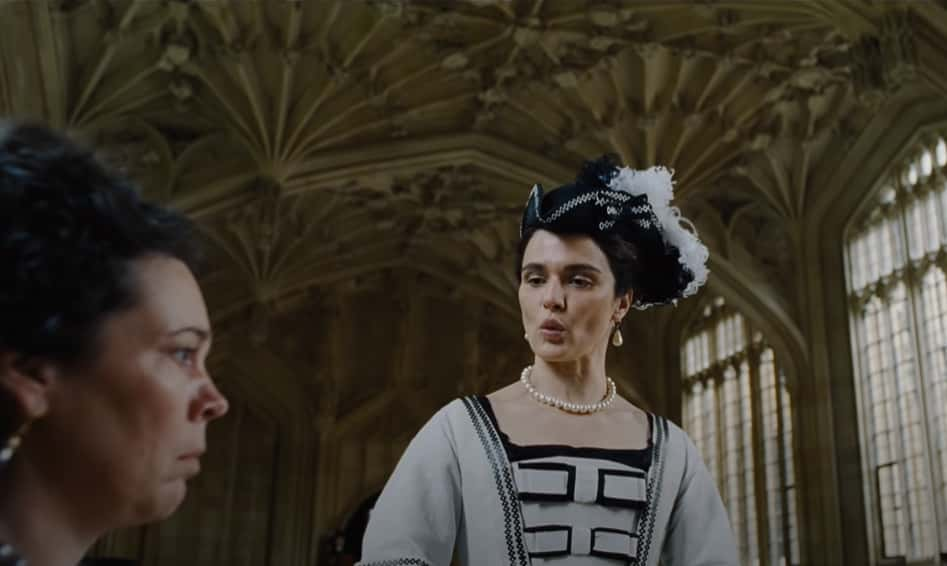 The Favourite (2018), Fox Searchlight Pictures
The Favourite (2018), Fox Searchlight Pictures
40. Sarah Was Moving Up In The World
As soon as King James was out, Sarah Churchill's attachment to Anne started to pay off. William and Mary made her husband the Duke of Marlborough and offered him several important political offices. That meant Sarah Churchill was now the Duchess of Marlborough. Turns out, having friends in high places can really pay off...
But not everyone was as blind to the Marlborough's machinations as Anne was. Soon, they'd have to tread very carefully.
41. The Drama Starting Blowing Up
What a king and queen giveth, they can taketh away. Just a couple years after William and Mary made John Churchill the Duke of Marlborough, they started to get suspicious of him. In one fell swoop, they stripped him of all political offices, publicly humiliating him. However, the Marlboroughs still had a friend in Anne. Queen Mary demanded that Anne dismiss Sarah, but not only did Anne refuse, she actually brought Sarah to a fancy party to parade her in front of the entire court.
Anne finally grew tired of her sister's meddling and decided to make a stand—but she'd pay the price for it.
42. She And Her Sister Were At Each Other's Throats
Anne's defiance did not impress Mary. After Anne refused, Mary had Sarah Churchill forcibly removed from the royal household. Anne was furious and abandoned the palace herself, setting up shop at Syon House instead. Mary had had enough: She dismissed Anne's honor guard, forbade any courtiers from even visiting her, and told all government officials to ignore everything she said.
By this point, the two sisters hated each other almost as much as they hated their father—but soon, a cruel act from Mary would destroy their relationship forever.
43. Her Sister Went Too Far
Anne's pregnancy struggles hadn't stopped just because of all the political intrigue going on. Soon after she left the palace, she gave birth to another son. However, Anne's joy quickly turned to heartbreak—the boy passed minutes after birth. As Anne mourned, her sister finally came to visit. But if Anne thought the queen was there to offer her condolences, she was in for a rude awakening.
44. Her Sister Thought She Knew What Was Best
Mary didn't show up at Anne's door to mourn a lost nephew. No, she took the opportunity to scold her over her friendship with Sarah. For Anne, laying there, weeping for a lost son, hearing her sister scream at her about her best friend, that was the breaking point. After Mary left that day, the two sisters never saw each other again. Mary might have thought she was on top of the world then—but things could change in an instant.
 The Favourite (2018), Fox Searchlight Pictures
The Favourite (2018), Fox Searchlight Pictures
45. Mary Kicked The Bucket
In 17th-century England, it didn't matter who you were: Smallpox could come for anyone. Soon after her final blowup with Anne, Queen Mary caught the disease, and after a brief and violent battle, she passed in 1694. Losing a sister is tragic, sure, but I can't help but think Anne had to celebrate. She and her sister had been on terrible terms at the time, and Mary's passing all but guaranteed she'd inherit the throne.
For the time being, William remained the King of England, but now Anne just had to sit and wait...
46. Things Got A Little Better
Anne's problems were with Mary, not William. Once her sister left this world, William let her come back to the royal palace and gave her all of Mary's jewels. If Anne was the heir apparent, she might as well look the part. But Anne's fortunes hadn't completely shifted. William paraded her around, but he refused to give her any real power. Thus started a tense standoff that would last years...
47. She Was Living On A Razor's Edge
Anne was the heir apparent, but she knew that her father was biding his time over in France just waiting for an opportunity to come and take back his throne. To this end, Anne wrote to William and point-blank asked if she could succeed him when he was gone. William's answer left her stunned: He didn't say anything. He didn't say she wouldn't succeed him, but he didn't confirm it either.
For now, Anne just had to wait and pray that the dice fell in her favor.
48. She Could Barely Walk
Anne found herself in a shaky political position—but she had even bigger problems to worry about. She'd never been exactly healthy, but her gout was getting worse and worse. By this point, it got so bad that she could barely walk. She either had servants push her around in a wheelchair or carry her in a lavish sedan chair. While outside, she got around in what was basically a small, one-horse chariot.
Apparently, she ripped around the grounds of her estates like an insane person. Anyone unlucky enough to be in her way had to look out.
 The Favourite (2018), Fox Searchlight Pictures
The Favourite (2018), Fox Searchlight Pictures
49. She Looked Rough
As Anne's health worsened, her appearance suffered as well. She was in near-constant pain, and she stopped caring about her clothes. Her dresses were often dirty and tattered, her feet were almost always bound up in gruesome bandages, and her face grew ruddy and spotted. Anne was hardly some extravagant monarch out of a fairy tale...
In fact, her so-called "best friend," Sarah Churchill, put it bluntly: "She grew exceedingly gross and corpulent."
 The Favourite (2018), Fox Searchlight Pictures
The Favourite (2018), Fox Searchlight Pictures
50. She'd Seen A Lot Of Loss—But Nothing Like This
So far, Anne had had an utterly horrific time when it came to motherhood—but the worst pain was yet to come. In July 1700, mere months after her twelfth stillbirth, her only surviving son was ripped away from her at just 11 years old. She'd spent nearly 20 years trying to have children, and now she lost her final one. Historians wrote that the boy's passing left Anne and her husband "overwhelmed with grief," as you can imagine.
Anne had suffered a lot of losses, but this one hit her particularly hard. For the rest of her life, Anne made her entire household observe a day of mourning on the anniversary of that tragic day.
51. Her Father Passed—She Was Fine With It
At least the next loss wasn't quite so depressing. A year later, Anne's father, the ex-King James, passed. He was older, disgraced, and Anne had never liked him. This one was probably a little easier to get over. Soon after his demise, Anne's hated stepmother, Mary of Modena, sent Anne a letter. In it, she pleaded Anne to restore her father's line and make her son the king upon William's end. Yeah, about that...
52. She Got Her Crown
Anne had absolutely no plans of restoring her hated father's line. In 1702, King William finally kicked the bucket, and after so many years of mistreatment and struggle, Anne was finally queen. And, for once in her life, people rejoiced! The English liked William better than they had the Catholic James, but Willy was still a Dutchman. With Anne, they finally had a proper English, Anglican monarch.
Everyone's troubles were finally at an end, right? Of course not. Now that Anne was queen, the real drama could begin.
53. Servants Carried Her To Her Coronation
Anne's coronation wasn't exactly the most inspiring sight. Crippled with agonizing gout, Anne couldn't make the walk to Westminster Abbey. She had to have servants carry her to the great church in a sedan chair. But if you think that her physical disabilities were the only thing making her life difficult, you'd have another thing coming.
54. She Wasn't The Best Speaker
Remember how Sarah Churchill claimed that Anne was a little, well, dumb? She wasn't entirely exaggerating on that fact. Anne really did have a hard time holding a conversation, and she had her advisors script out everything she would need to say to any foreign ambassadors. Unfortunately, you can't exactly script out one side of a conversation, and this led to some truly humiliating moments...
 The Favourite (2018), Fox Searchlight Pictures
The Favourite (2018), Fox Searchlight Pictures
55. Seriously, It Was Really Bad
Surely, Anne's conversational difficulties couldn't have been that bad, could they? Oh yes, they could. She'd often find herself completely out of her depth while talking to people. What she did in those moments is even more humiliating than we ever imagined: She would literally stand there and move her lips as if she was talking, but without saying any words...Did she actually think that would work?
 The Favourite (2018), Fox Searchlight Pictures
The Favourite (2018), Fox Searchlight Pictures
56. She Unified Great Britain
Ok, so Anne had her difficulties, but it's not like her reign was a disaster. She actually oversaw one of the most important moments in British history: The Acts of Union. Under Anne, England and Scotland joined as a single country, Great Britain, with a single parliament. That's after literally centuries of conflict and war between the two countries. That made Anne the first-ever Queen of Great Britain.
That's something no one can ever take away from her, but let's not pretend that her entire reign was smooth sailing. In fact, at times, it was quite literally the exact opposite.
57. She Lived Through A British Hurricane
When you think of Britain, you think of one thing: Hurricanes. Ok, not really, so how unlucky did Anne have to be to rule over one of the worst storms in British history? The Great Storm of 1703 wrecked hundreds of ships, destroyed thousands of buildings in London, and ripped up 4,000 trees in the New Forest. It got so bad that even in the formidable St. James's Palace, Anne and her servants had to cower in the cellar until the storm finally passed.
I don't know about you, but if a hurricane raged through London in the first years of my reign, I'd maybe take that as a bad sign...
58. Sarah Started Going Too Far
Queen Anne's coronation must have felt like a vindication for Sarah Churchill. She'd hitched her wagon to this unlikely royal a lifetime ago, and now it was finally time to earn dividends. By this point, Churchill had become used to having Anne listen to everything she said. Now that Anne had become queen, I'm sure Churchill thought that meant that Great Britain was hers to control.
She started pushing Anne around even more, trying to force her to shape the government in the way Churchill wanted. But Anne was no longer the put-upon princess she'd once been. Sooner or later, she'd start pushing back...
 The Favourite (2018), Fox Searchlight Pictures
The Favourite (2018), Fox Searchlight Pictures
59. Anne Found A New Friend
At this point in our story, a new character enters the scene: A lowborn woman named Abigail Hill. She appeared out of the blue into Anne's life, but she would prove the wedge that would finally drive Anne and Sarah apart forever.
 The Favourite (2018), Fox Searchlight Pictures
The Favourite (2018), Fox Searchlight Pictures
60. Abigail And Sarah Were Blood
Ironically, Abigail Hill was actually Sarah Churchill's cousin—though from a lowborn side of the family. While Churchill enjoyed the comforts of nobility, the Hill family fell on hard times, and Abigail knew all too well what it felt like to go hungry. Though her father was once a well-to-do merchant, he lost everything, and Abigail was forced to take up work as a servant.
It was at this point that her cousin took an interest in her. Sarah Churchill took Abigail under her wing—something she would eventually sorely regret.
 The Favourite (2018), Fox Searchlight Pictures
The Favourite (2018), Fox Searchlight Pictures
61. Sarah Helped Abigail For Selfish Reasons
Sarah Churchill helped pull Abigail up out of the gutter, but let's not sit here and think that she did it out of the goodness of her heart. Most likely, Churchill thought it a terrible embarrassment to have such a close relative of hers demeaning herself as a servant. It seems really unlikely she actually cared about Abigail at all. Either way, Churchill took Abigail into her own household—and essentially sealed her own fate.
 The Favourite (2018), Fox Searchlight Pictures
The Favourite (2018), Fox Searchlight Pictures
62. Anne Liked Abigail Immediately
Thanks to her connection to Sarah, Abigail managed to get a job in Queen Anne's palace in 1704. Just a few short years earlier, she'd been a servant for a lowly lord, now she had a position right next to the freaking queen. Now that's moving up in the world. Anne quickly came to know her young maid Abigail—and found her to be everything Sarah Churchill wasn't.
 The Favourite (2018), Fox Searchlight Pictures
The Favourite (2018), Fox Searchlight Pictures
63. Abigail Was Sarah's Opposite
Sarah Churchill was Anne's best friend for years, but I wouldn't say she was friendly. She was intense, domineering, and ambitious. Meanwhile, Abigail Hill was kind, gentle, and sympathetic. Pretty much everyone in Anne's life had mistreated her since day one, so Abigail's compassion was a very welcome change. The two started becoming very close—and Churchill didn't realize what was happening until it was too late.
 The Favourite (2018), Fox Searchlight Pictures
The Favourite (2018), Fox Searchlight Pictures
64. Sarah Missed What Was Going On Under Her Nose
Sarah Churchill, the Duchess of Marlborough had become a pretty important person. That meant she was busy, so she spent almost no time at the royal palaces anymore. Because of that, it took her years to learn that Anne and Abigail had become close. Extremely close. She finally discovered Anne's secret in 1707, a full three years after Abigail arrived. But even still, when she arrived and saw what Anne had done, it left her utterly stunned.
 The Favourite (2018), Fox Searchlight Pictures
The Favourite (2018), Fox Searchlight Pictures
65. Anne Showered Abigail With Gifts
Not only had Anne married Abigail to a gentleman from her household, but she'd actually given Abigail a massive dowry from the privy purse. The privy purse is the monarch's sizeable private income, which you'd think would mean it was Anne's to do with as she would. However, Sarah was the Keeper of the Privy Purse. She took Anne's gift as a personal betrayal.
Anne wanted to send Churchill a message—and she had more in store than just that.
 The Favourite (2018), Fox Searchlight Pictures
The Favourite (2018), Fox Searchlight Pictures
66. Anne Gave Up Sarah's Rooms
One day, Sarah Churchill returned to Anne's palace to learn that Abigail had actually moved into her rooms. Sure, Sarah basically never used them anymore, but it was a symbolic thing. Anne had made it clear: Abigail was taking Sarah's place. Now, if you think someone as shrewd and conniving as Sarah would take that kind of thing sitting down, you haven't really been paying attention...
 The Favourite (2018), Fox Searchlight Pictures
The Favourite (2018), Fox Searchlight Pictures
67. Sarah Made Scandalous Allegations
I'm sure Anne suspected Sarah might be angry at her—but I bet she never expected Sarah to go as far as she did. She commissioned a writer to craft an utterly scandalous poem that implied Anne and Abigail were in a lesbian relationship. As you can imagine, the poem exploded into a swirl of rumors and gossip, but Sarah didn't stop there.
68. She Made Sure Anne Got It
Sarah didn't just release a poem as a veiled threat to Anne. She made far more literal threats too. She wrote Anne a letter containing excerpts from the poem, along with the line, "Such things are in my power that if known...might lose a crown." For most people, threatening a monarch that blatantly would be fatal, but Sarah Churchill clearly thought pretty highly of herself.
Still, she had to assume there'd be consequences for her actions...
 The Favourite (2018), Fox Searchlight Pictures
The Favourite (2018), Fox Searchlight Pictures
69. Her Friend Yelled At Her In Public
It's one thing for Mrs. Morley and Mrs. Freeman to squabble in private, but Anne and Sarah Churchill's tiff was starting to get extremely public. At a thanksgiving service, Anne tried to stick it to Sarah by refusing to wear the jewels she'd picked out. This led to an argument where Sarah snapped and told the queen to be quiet in front of a crowd of people.
I don't have to tell you that it's a bad look for any monarch to have someone push you around in public. Anne was starting to get fed up—but soon, Sarah Churchill would be the last thing on her mind.
 The Favourite (2018), Fox Searchlight Pictures
The Favourite (2018), Fox Searchlight Pictures
70. Anne Lost Her Husband
Anne had long since given up on having children, but that doesn't mean there were no more tragedies left for her. In 1708, her beloved husband passed, leaving her completely and utterly alone. As you can imagine, Anne was completely distraught. She needed support now more than ever—but Sarah Churchill was never the supportive type.
Churchill's cruel behavior after Prince George's passing was the final nail in the coffin.
71. Her "Friend" Wasn't Much Help
Sarah went to be with Anne just before her husband passed, but if you thought she'd be a shoulder to cry on, you've got another thing coming. As soon as Prince George gave his last breath, Sarah started bossing Anne around. She immediately took down George's portrait from Anne's bedchamber and refused to give it back. Then, she demanded the Queen move to a different palace.
Anne just wanted to mourn and Churchill started bossing her around worse than ever—but when the topic of Abigail came up, that's when things got really heated.
 The Favourite (2018), Fox Searchlight Pictures
The Favourite (2018), Fox Searchlight Pictures
72. Sarah Really Laid It On Thick
Anne was sitting there, mourning her lost husband, and in comes Sarah, telling her how stupid she was for spending time with Abigail—pretty much the only person who'd ever been nice to her. Sarah's derision got so bad that Anne actually wrote to Sarah's husband, telling him to make his wife, "leave off teasing & tormenting me & behave herself with the decency she ought both to her friend and Queen."
So, do you think Sarah stopped? Three guesses...
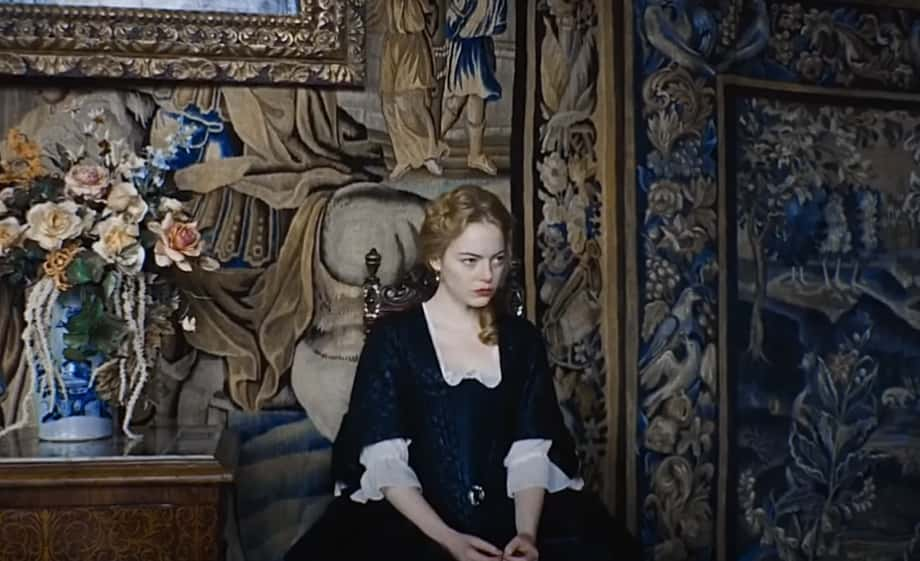 The Favourite (2018), Fox Searchlight Pictures
The Favourite (2018), Fox Searchlight Pictures
73. Sarah Finally Went Too Far
Sarah's ridiculously callous behavior after the loss of Anne's husband was finally the breaking point. Anne just snapped and decided she wasn't going to put up with her onetime friend's torment anymore. At their final meeting, Anne simply said the same two phrases over and over: "Whatever you have to say you may put in writing," and "You said you desired no answer, and I shall give you none."
When that unbelievably awkward encounter finally ended, Anne and Sarah parted ways, never to see one another again.
 The Favourite (2018), Fox Searchlight Pictures
The Favourite (2018), Fox Searchlight Pictures
74. She Twisted The Knife
Anne made Sarah officially resign from her offices. As a final parting shot, she made Abigail the Keeper of the Privy Purse. Sarah Churchill had flown close to the sun for decades, and she'd finally gotten burnt.
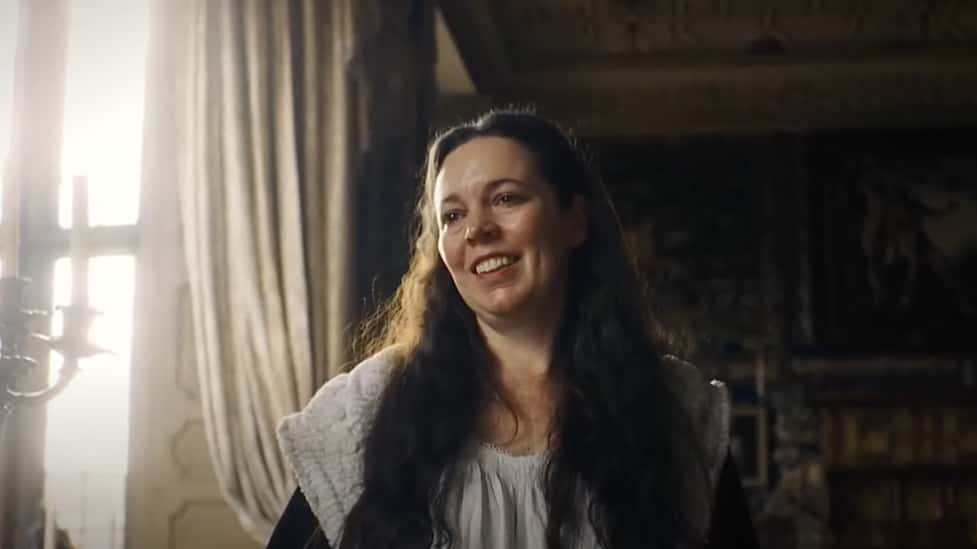 The Favourite (2018), Fox Searchlight Pictures
The Favourite (2018), Fox Searchlight Pictures
75. Sarah Did OK For Herself
Sarah Churchill, the Duchess of Marlborough, had finally overplayed her hand. She'd spent her entire life using her friendship with Anne to gain power for herself, but that had come to an end. Don't feel too bad for her though: She might've blown it with Anne, but she'd done alright for herself. She was a Duchess for crying out loud! By the time she passed at the ripe old age of 84, she was one of the richest women in Europe.
 The Favourite (2018), Fox Searchlight Pictures
The Favourite (2018), Fox Searchlight Pictures
76. Anne Made A Lady Of Her Friend
Anne just kept on heaping rewards on her beloved Abigail. Though Abigail had risen far, she was still lowborn and severely limited in any actual power she could possess. That all changed when Anne created 12 new peers in the House of Lords, an unprecedented move. And who did she choose to be one of those 12 new lords? Abigail's husband of course! That made Abigail an official noble. Not a bad birthday present!
 The Favourite (2018), Fox Searchlight Pictures
The Favourite (2018), Fox Searchlight Pictures
77. She Had Good Timing
Anne couldn't have planned it any better: The same day she made Abigail a baroness, she also officially dismissed the Duke of Marlborough, Sarah's husband, as the commander of the army.
 The Favourite (2018), Fox Searchlight Pictures
The Favourite (2018), Fox Searchlight Pictures
78. Her Health Started Deteriorating
Anne had been terribly unhealthy for pretty much her entire life, but soon after her falling out with Sarah Churchill, things really took a turn for the worse. For the first half of 1713, she couldn't walk at all. She got a bit better, but then came down with a horrible fever around Christmas. Quicky, rumors swirled that the queen's end was imminent—but she shocked everyone by getting better.
Queen Anne as not going down without a fight.
 The Favourite (2018), Fox Searchlight Pictures
The Favourite (2018), Fox Searchlight Pictures
79. She Tried To Work Through It
Anne's recovery didn't last too long. By the following March, she appeared to be on death's door once again. However, despite her failing health, she still managed to drag herself to two late-night cabinet meetings to tend to matters of state. However, when the third meeting came around, Anne was finally too ill to make it. She'd fought off illness since the moment she was born, but she was finally losing.
 The Favourite (2018), Fox Searchlight Pictures
The Favourite (2018), Fox Searchlight Pictures
80. She Had A Stroke
After months in a sickbed, Anne suffered a stroke on July 30, 1714, and this time, there was no recovering. She passed on August 1, 1714. Her doctor, John Arbuthnot, could not help but see her end as a mercy. Anne had lived in agony for years, and Arbuthnot eventually wrote, "I believe sleep was never more welcome to a weary traveler than death was to her."
81. She Was In Bad Shape At The End
Anne had spent her final years almost completely sedentary, and she'd grown severely obese by the end. Reportedly, her coffin was so massive that it took 14 men to carry it. But that wasn't nearly the worst indignity that Anne suffered in death—her old "friend" Sarah Churchill saw to that.
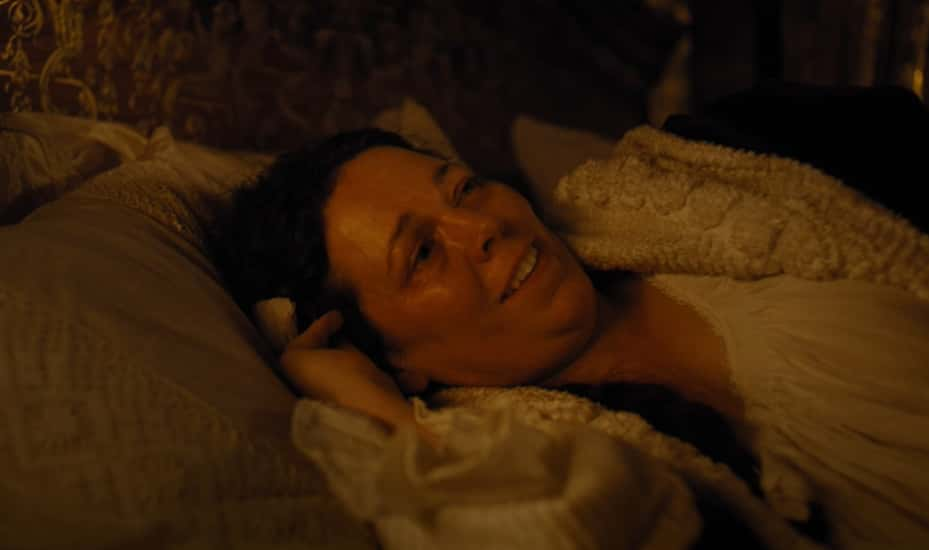 The Favourite (2018), Fox Searchlight Pictures
The Favourite (2018), Fox Searchlight Pictures
82. Her "Friend" Spat On her Grave
After Anne passed, the Duchess of Marlborough took the time to thoroughly drag her in her memoirs. She basically called Anne a complete idiot of a queen who never would have gotten anywhere without her. And I'm not just talking about some stern words here: Sarah Churchill really went for it when it came time to drag Anne's name through the mud.
 The Favourite (2018), Fox Searchlight Pictures
The Favourite (2018), Fox Searchlight Pictures
83. Sarah Didn't Pull Any Punches
This is an excerpt from Sarah's memoirs: "...Nobody can maintain that she was wise, nor entertaining in conversation. She was ignorant in everything but what the parsons had taught her when a child... Being very ignorant, very fearful, with very little judgement..." Yeesh. Thanks to this memoir, for centuries, pretty much every historian pinned Anne as one of the dumbest people ever to hold the crown.
But was that the full story? Modern scholars have different ideas—maybe there was more to Queen Anne than met the eye.
84. Anne Was Actually A Great Queen
Ok, so nobody's out here claiming Anne was some kind of genius, but if you look at her legacy, it's...pretty amazing? Here's a woman, the second daughter of the king's brother, and she managed to outlive everyone ahead her to become Queen at a time of amazing prosperity. She took a more active role in Parliament than any monarch before her, and her reign saw unbelievable progress in the arts, economy, science, and politics.
Turns out, Queen Anne was something of a boss. Sarah Churchill looked down on pretty much everyone, not just Anne. Meanwhile, Anne got out there and got stuff done. And considering all the tragedy she suffered, her work is even more remarkable.
85. The Final Miscarriage
Anne became pregnant for the final time in 1699, but this one ended like so many of the others. In January 1700, she suffered one last stillbirth. She had been trying to have children for nearly 20 years, and in that time, she'd had twelve stillborn children. Only five of her kids survived birth, and four of them passed before the age of two. She had an unbelievably horrific time when it came to childbirth—but now, centuries later, scientists believe they know why.
 The Favourite (2018), Fox Searchlight Pictures
The Favourite (2018), Fox Searchlight Pictures
86. The Tragic Reason
Queen Anne undoubtedly suffered from a physical condition that went undetected in her time. Based on her experiences, autoimmune diseases like lupus or Hughes syndrome seem likely. These would not only explain Anne's many traumatic pregnancies, but also the other painful symptoms she experienced throughout her entire life.

